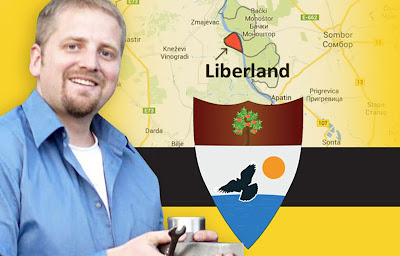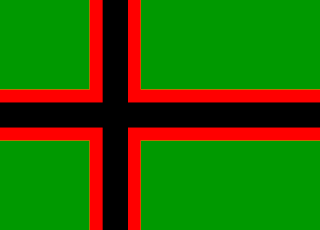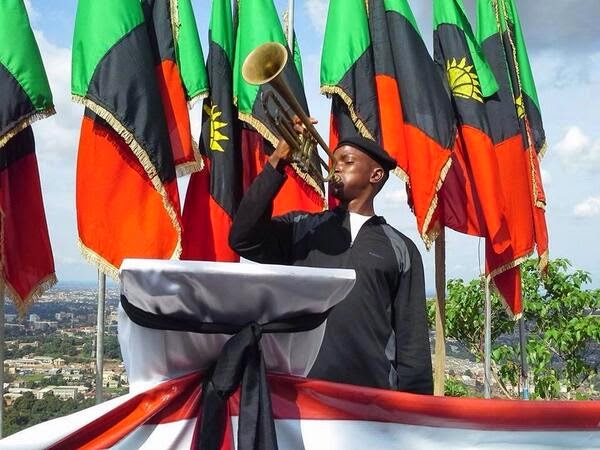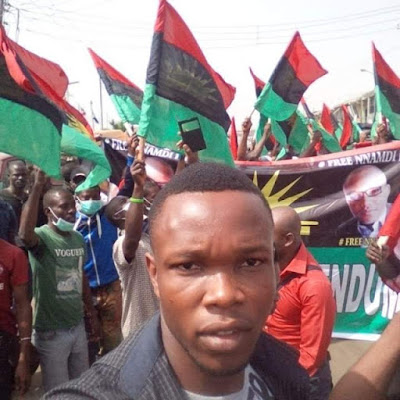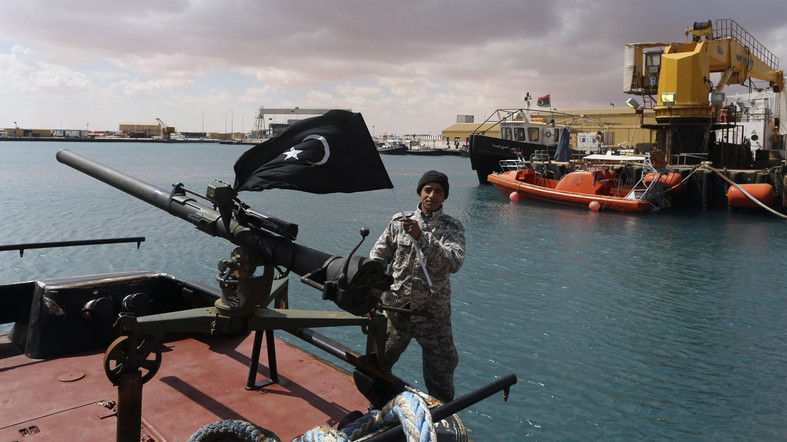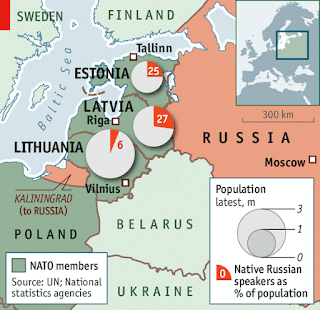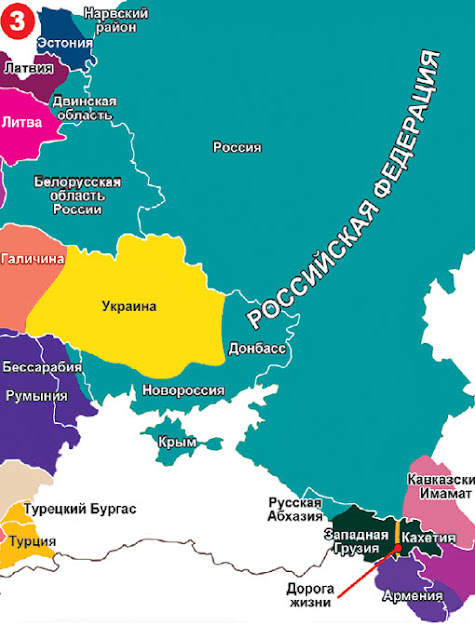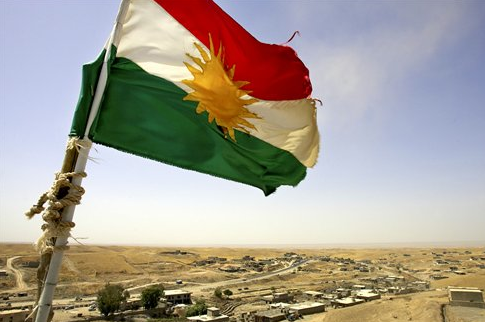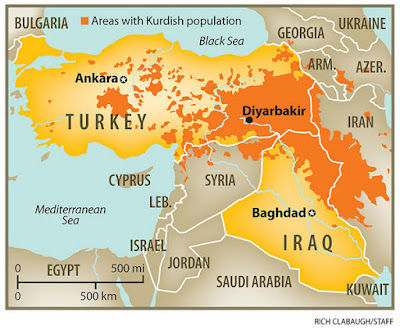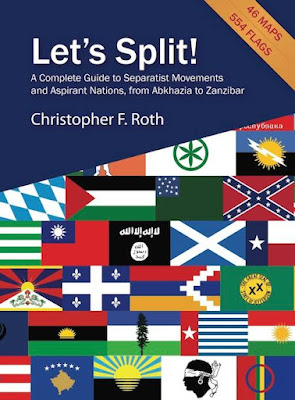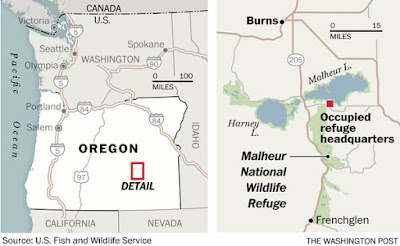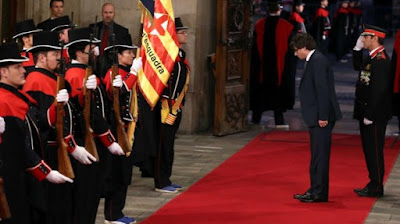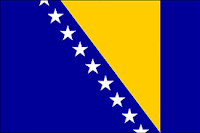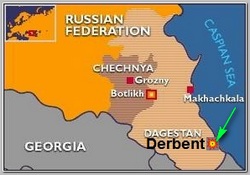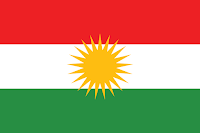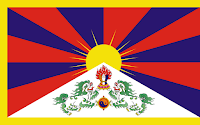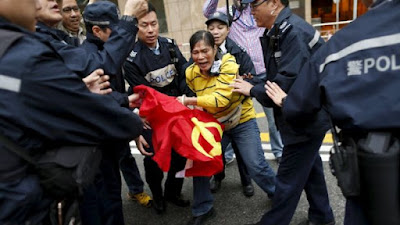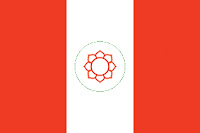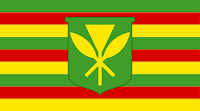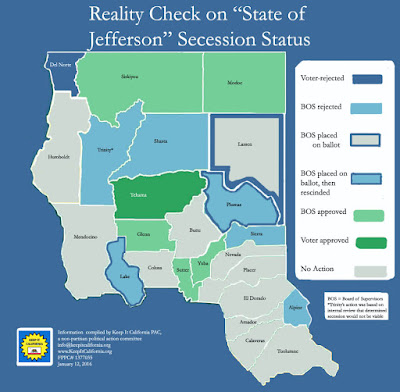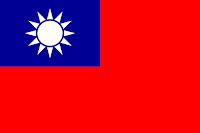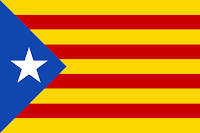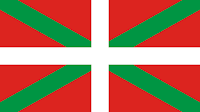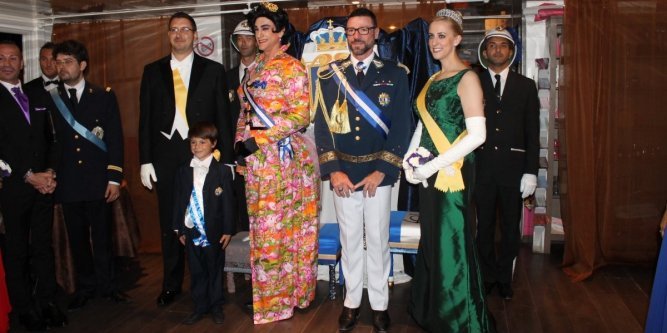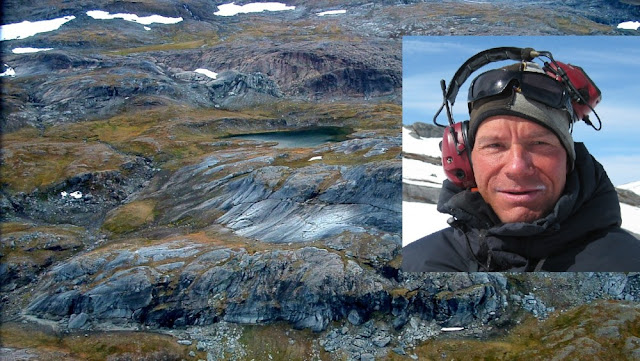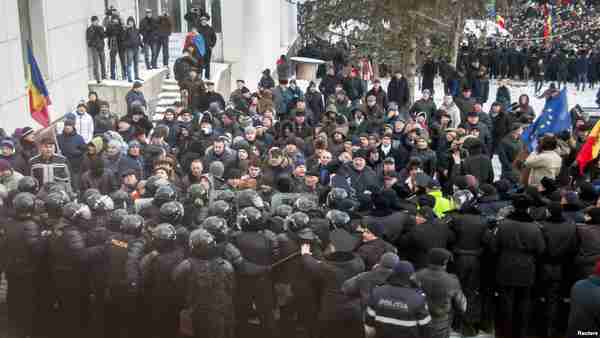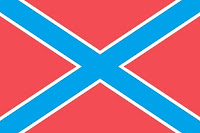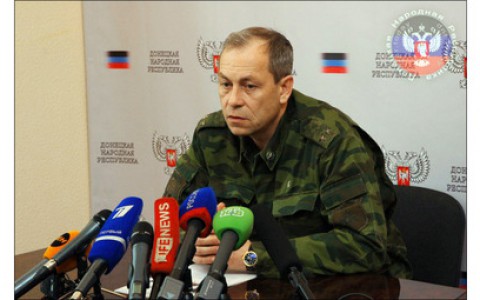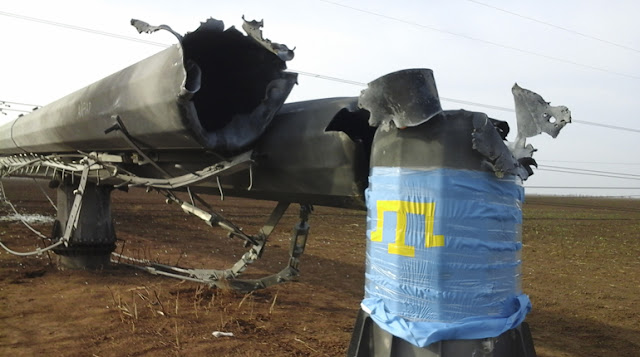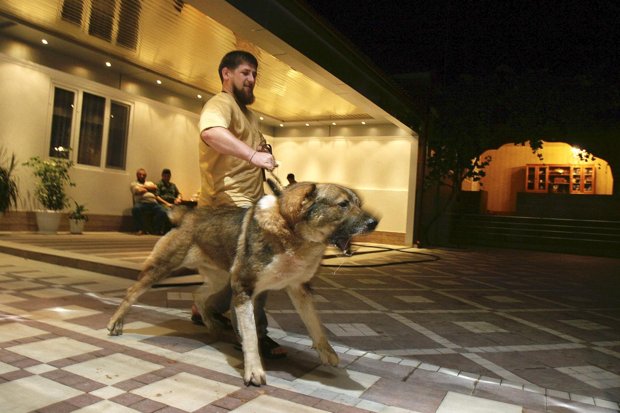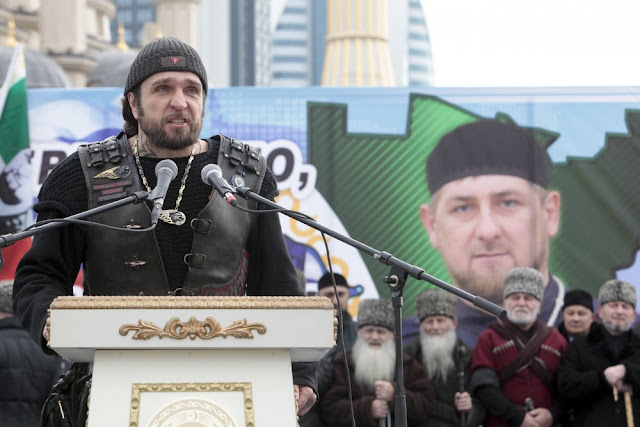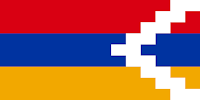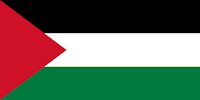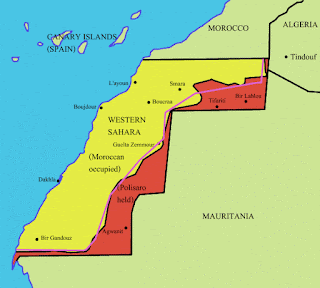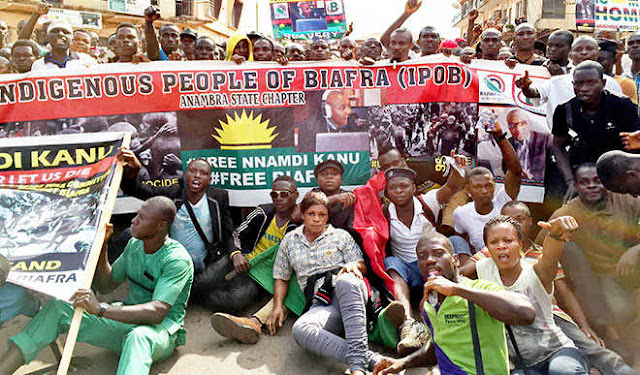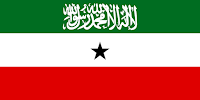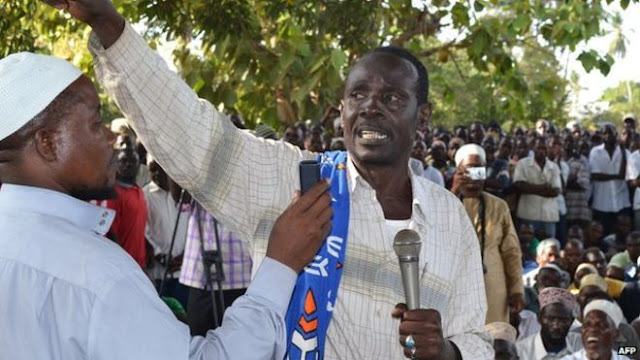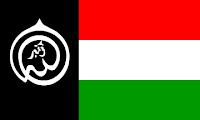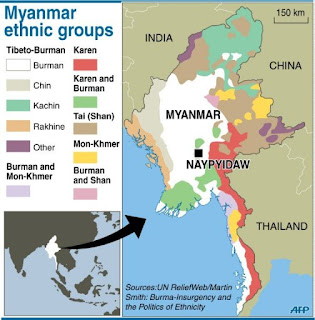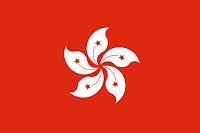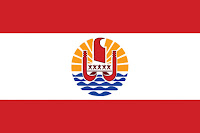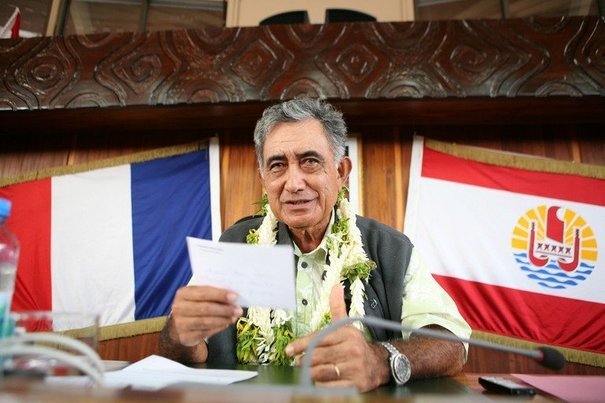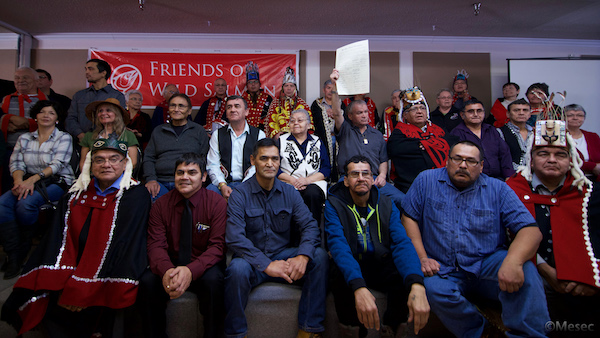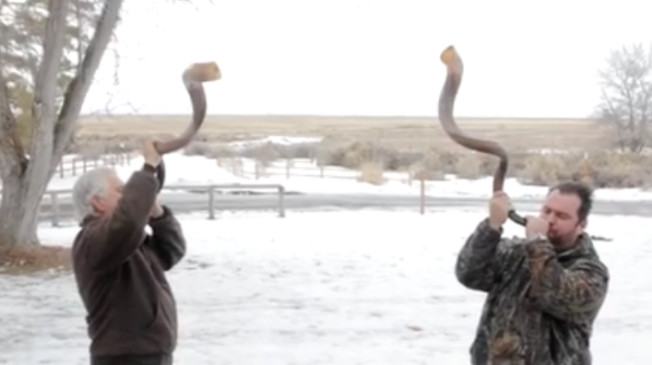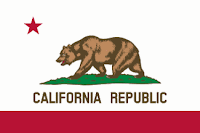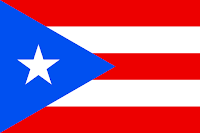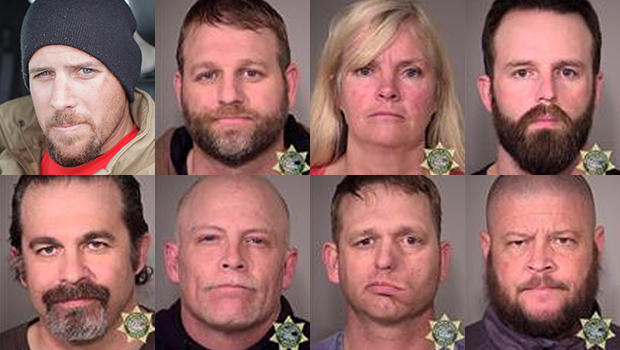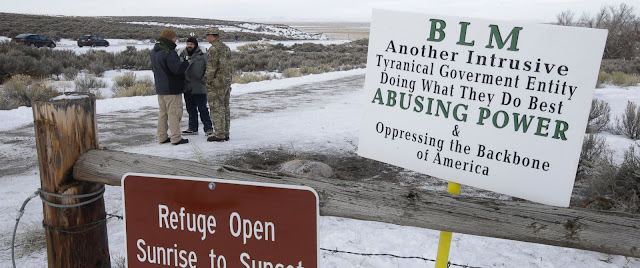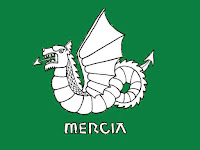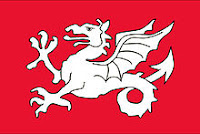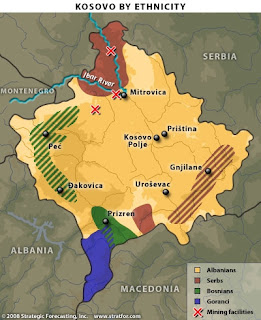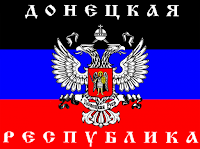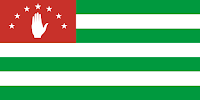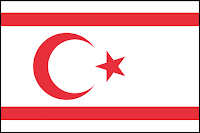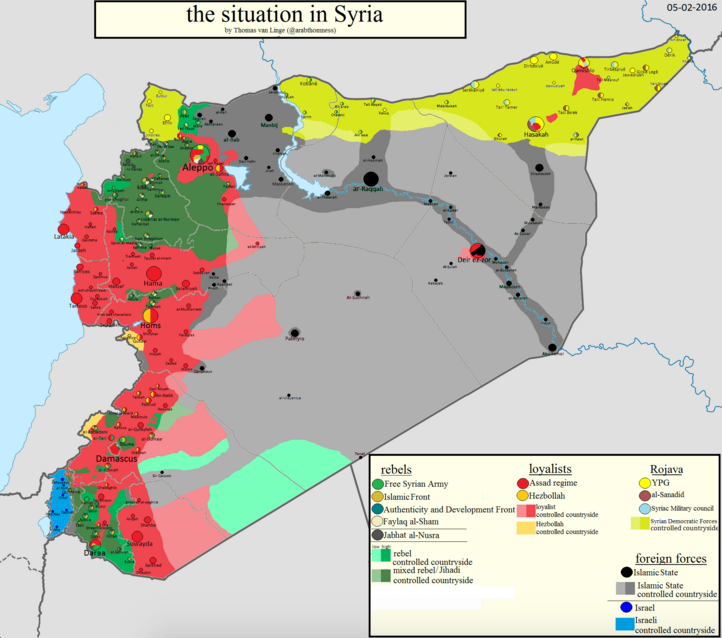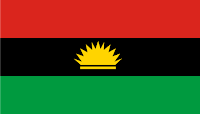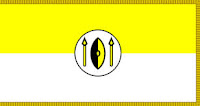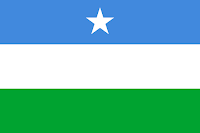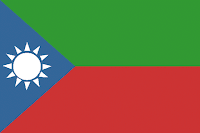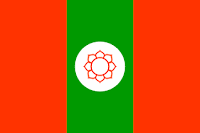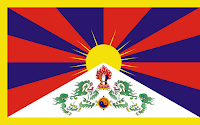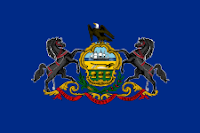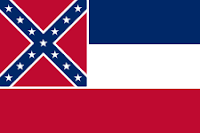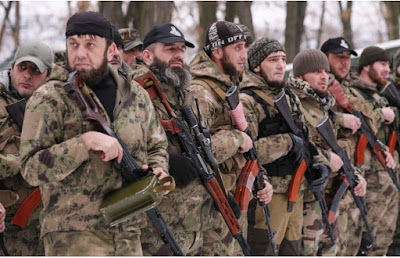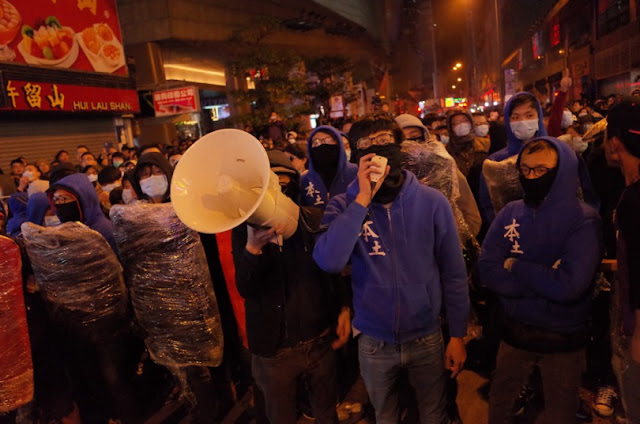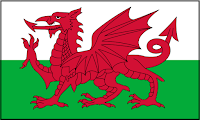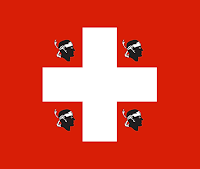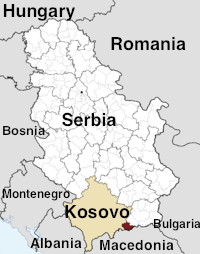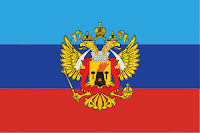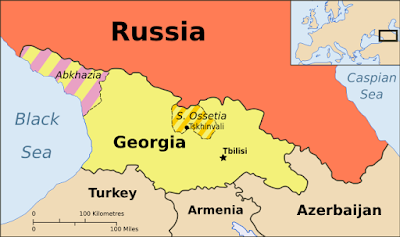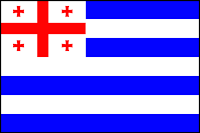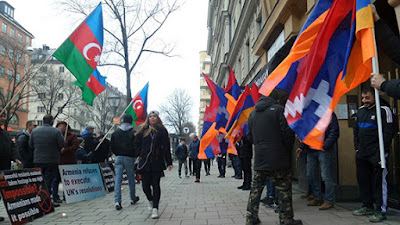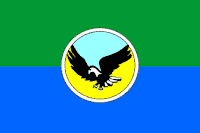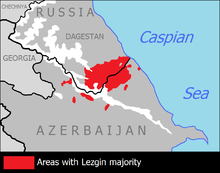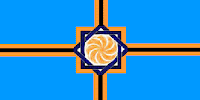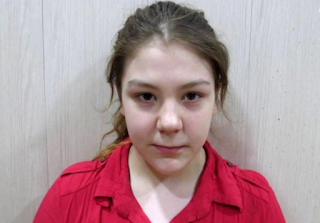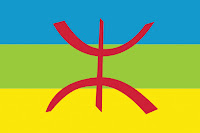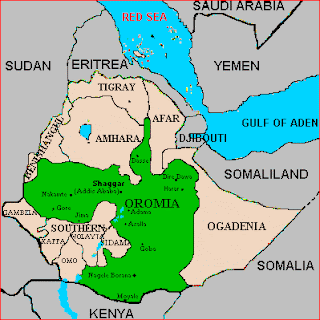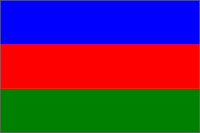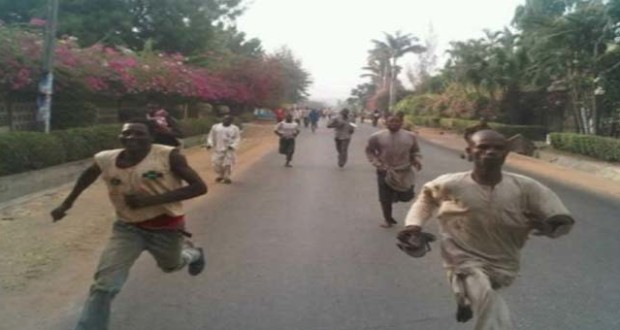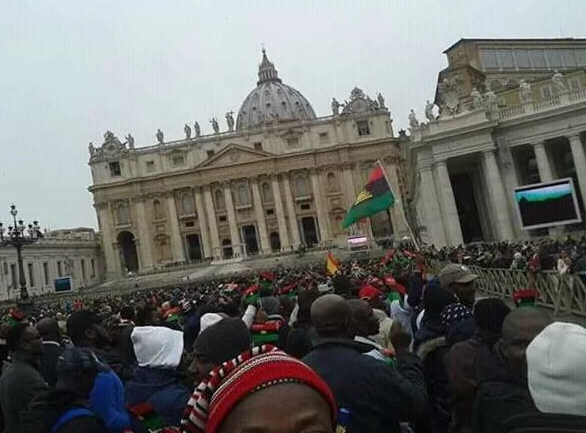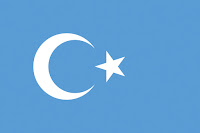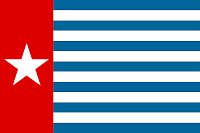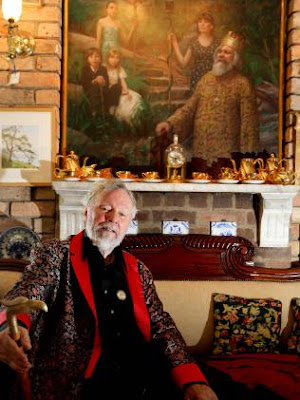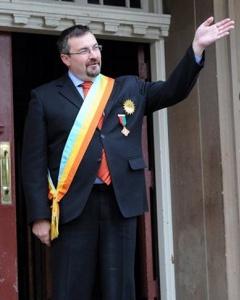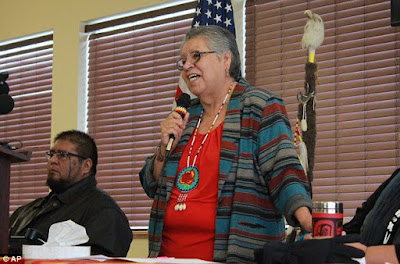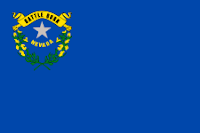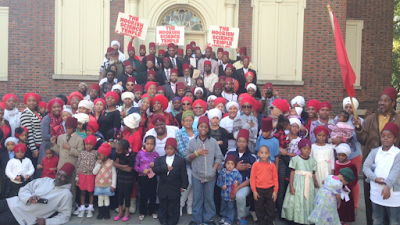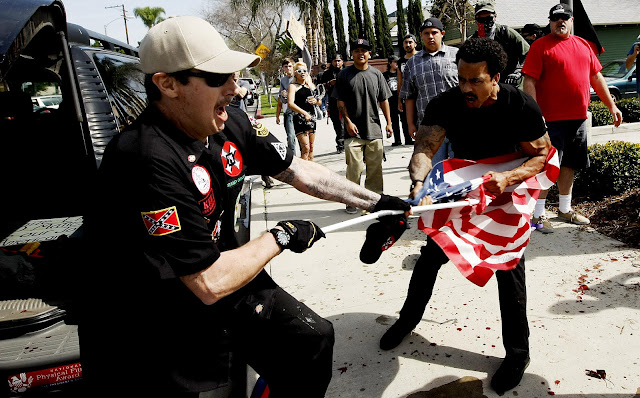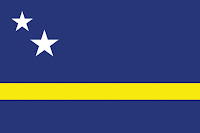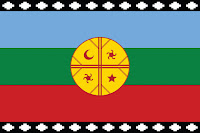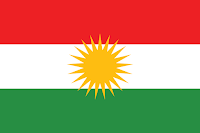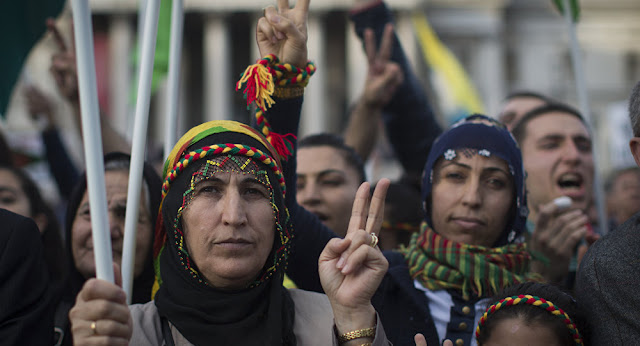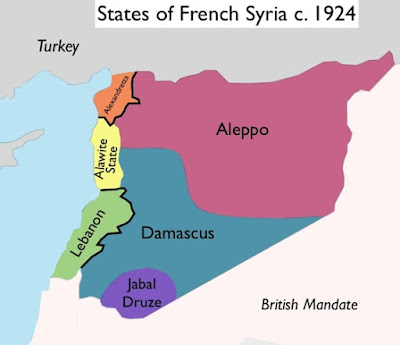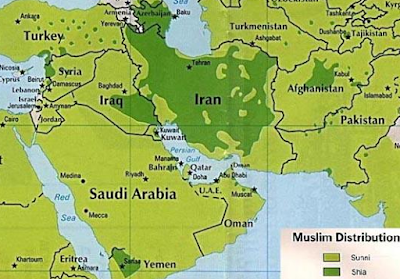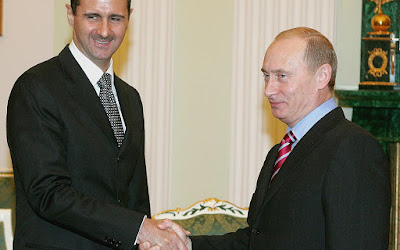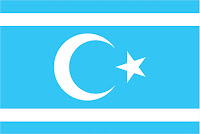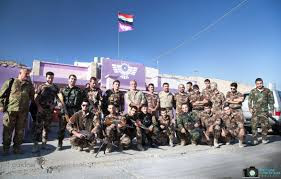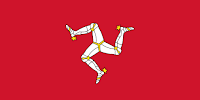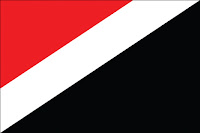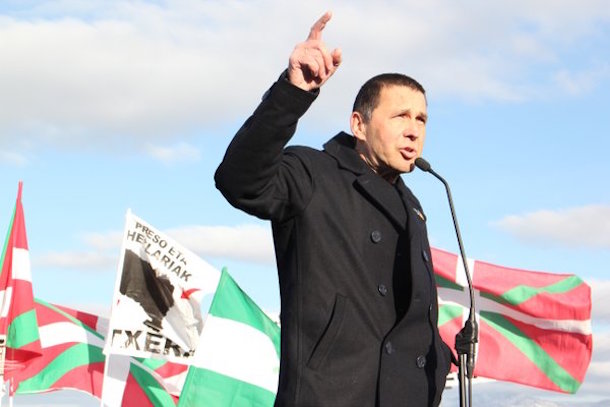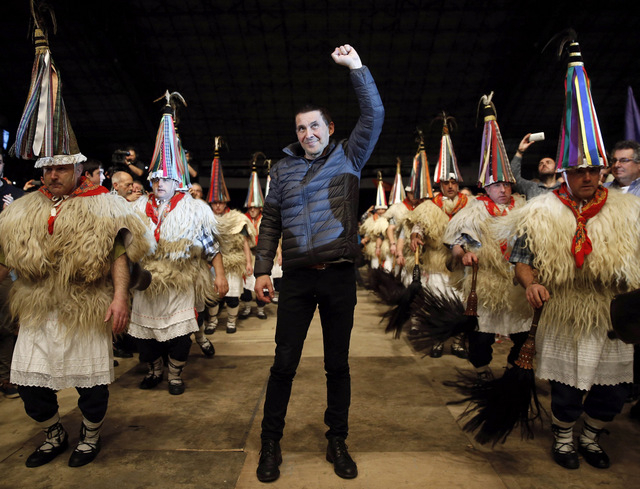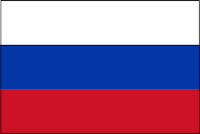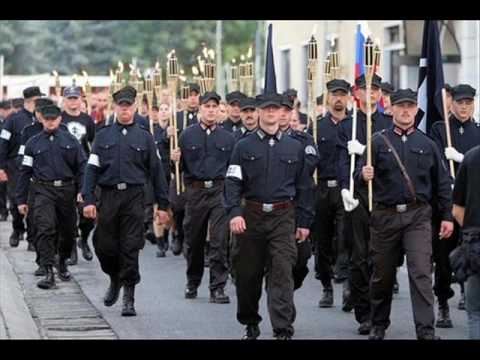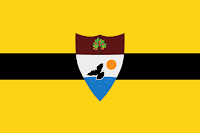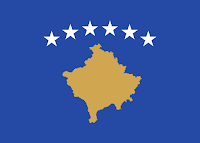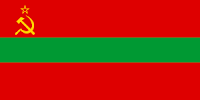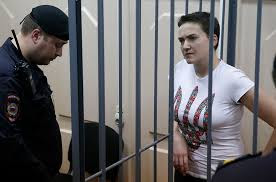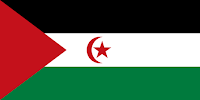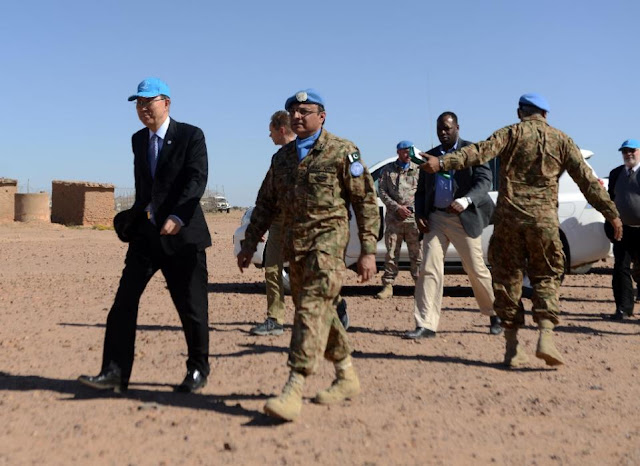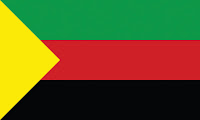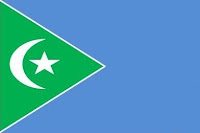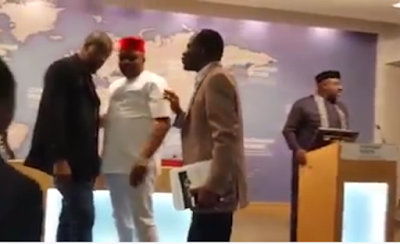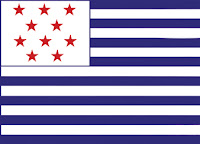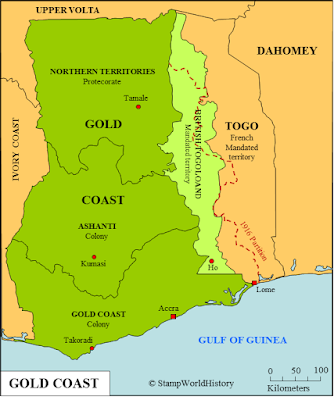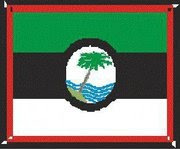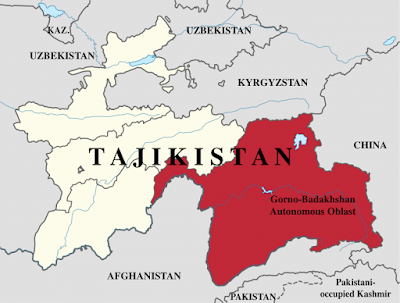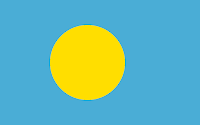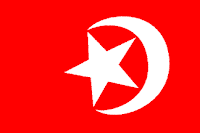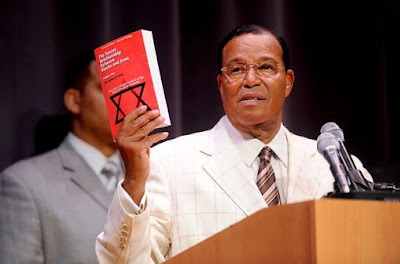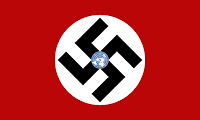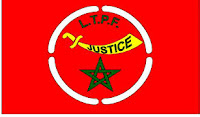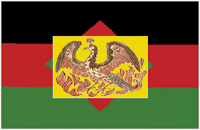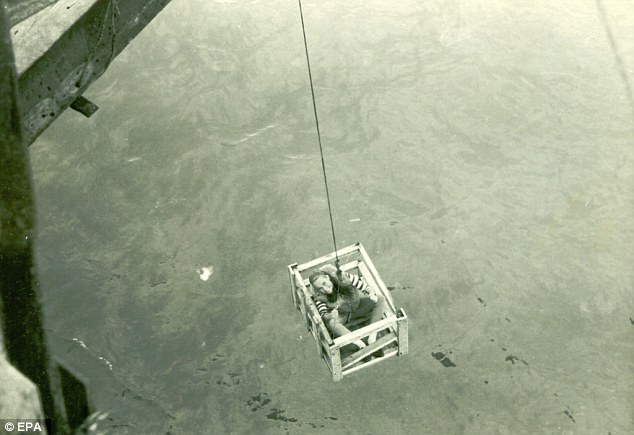TOP STORY:HONG KONG INDEPENDENCE BACKER POLLS STRONGLY IN LOCAL VOTE;“FISHBALL REVOLUTION” ORGANIZER ARRESTED; COPS SAY BOMBS FOUND
“‘Radical’?” asked
Edward Leung Tin-kei when asked about the
Chinese Communist Party’s criticism of the protest movement to which he belongs. “Yes. ‘Separatist’? I have no objection to either [term].”
Those words, if uttered by a
Tibetan or
Uyghur or
Inner Mongolian activist in the
People’s Republic of China, would mean a one-way ticket a “reeducation” camp, or worse. But Leung (pictured above) belongs to
Hong Kong Indigenous, which carefully uses the term “localist” to describe its cause of home rule for the
Hong Kong Special Administrative Region, which the
United Kingdom transferred to the P.R.C. in 1997 with a Chinese commitment to maintaining “one country, two systems.” That phrase means Hong Kong gets to keep the freedom of expression and religion and conscience, and its approximation of democracy, that it enjoyed as part of the U.K., while mainland China—the most murderous regime in world history, responsible for the massacre of 70 million people since it took power in 1949—keeps its “system” that consists of a pitiless totalitarianism.
![]() |
| The February 9th Fishball Revolution |
Leung is part of a new trend in Hong Kong, which is openly calling itself separatist and testing how much dissent Beijing will tolerate in the autonomous quasi-colony. What’s worrying to the Chinese government is that he is not a marginal figure. In a February 27-28 election to Hong Kong’s
Legislative Council,
Leung came in third, with 15% of votes cast—despite the fact that he is one of
scores of peaceful citizens facing charges of incitement to riot for a February 9th New Year celebration in Hong Kong’s working-class Mong Kong district which turned violent. That riot was dubbed the “Fishball Revolution” (
reported on recently in this blog) because the grievance that sparked it had been municipal restrictions on street-food vendors. (
Alvin Yeung, by the way, a more mainstream pro-democracy candidate, won the contested seat, with 37% of the vote.
Holden Chow, who is pro-Beijing, came in second.)
![]() |
Ray Wong (on truck, with megaphone) is defying the most brutal and repressive government in the world.
And no one’s sure where it will lead. |
Meanwhile, the head of Hong Kong Indigenous, Ray Wong Toi-yeung,
was arrested by
Hong Kong police on February 21st. He had been in hiding since the unrest, with his last public statement having been this proverb posted online on February 18th: “Rather be a shattered vessel of jade than an unbroken piece of pottery.” Police
claimed that upon his arrest they found bomb-making chemicals, batons,
Guy Fawkes masks, and Viagra—showing that even police who plant evidence have a sense of humor. Wong, who is 22 years old,
was charged with rioting by a magistrate a few days later and ordered held on $100,000 bail. He could get a 10-year sentence if convicted. Police
say they are searching for 100 other suspects who played an “active role” in the riots.
OTHER HONG KONG UPDATES
“Father” of Hong Kong Autonomy Movement Set to Lose Academic Job. A professor at
Hong Kong’s
Lingnan University who is considered the father of the idea of the city-state’s independence from the
People’s Republic of China has been told by the university’s Chinese Department that there would be no recommendation to renew his contract, which ends in August. The professor,
Horace Chin Wan-kan (a.k.a.
Chin Wan), on February 23rd blamed political pressure from Beijing for the development. Chin’s 2007 book,
On the Hong Kong City-State, is said to have inspired the modern pro-autonomy movement known euphemistically as “localism” so as not to run afoul of Chinese laws forbidding discussion of separatism. Chin has a Ph.D. in ethnology from
Germany’s
University of Göttingen.
China Bans Broadcast of Hong Kong Film Awards over Anti-Communist Dystopia. The Chinese Communist Party imposed broadcast bans on one, maybe two, major film-awards ceremonies, one in
Hong Kong and one in
Taiwan. The Hong Kong Film Awards, slated for April 3rd, was a source of tension with Beijing because of one of the leading entries,
Ten Years, which depicts Hong Kong in the year 2025, with direct totalitarian rule having replaced the current (threatened) “one country, two systems” regime. For Beijing, it dovetails a bit too neatly with this year’s Fishball Revolt (see above). The awards association said it would accept the ban rather than pull
Ten Years from the program. There are also indications that Taipei’s Golden Horse Film Awards, which are typically held in November, may get the same treatment.
Taiwanese Denied Entry to Hong Kong for “Republic of Taiwan” Stickers on Passports. Two citizens of
Taiwan were denied permission to enter mainland
China’s
Hong Kong Special Administrative Region on February 27th because they had stickers on their passports which covered the words “
Republic of China”—Taiwan’s official name—and replaced them with the words
“Republic of Taiwan”—the name that many separatists on the island would like their country to adopt.
EUROPE
Sturgeon Vows 2nd Independence Push in Case of Brexit; E.U. Vote Set for June. The
United Kingdom’s prime minister,
David Cameron,
announced on February 20th that the promised U.K.-wide poll on whether or not to stay in the
European Union (
E.U.) will take place on June 23rd. Despite saying, “I do not love Brussels, I love Britain,” Cameron reiterated that he thinks Britain is “safer and stronger” in the E.U. and hopes voters reject the idea of a “Brexit,” as the idea of a U.K. withdrawal is called.
Scotland’s first minister, and head of the separatist
Scottish National Party (
S.N.P.),
Nicola Sturgeon,
responded by sharpening her stance on the subject. She reminded the public that the great majority of Scots want to stay in the E.U.—a larger and firmer majority than in England—and as good as promised that in the event of a Brexit, Scotland would seek a second referendum on independence.
England, whose population is 84% of the U.K., could pass a Brexit vote no matter what Scotland,
Wales, and
Northern Ireland say. “If we get into the situation,” Sturgeon said, “where Scotland votes to stay in, the rest of the U.K. votes to come out, then people in Scotland will have big questions they will want to look at again about whether Scotland should be independent.” Unlike the situation before the narrowly defeated independence plebiscite in 2014, polls show a second vote could easily pass. Meanwhile,
London’s flamboyant, mercurial, tousle-haired mayor,
Boris Johnson, who has in the past argued for London’s secession from the U.K.,
came out on February 21st in favor of a Brexit.
![]() |
Scotland and Wales stand out like sore thumbs
in this map of the most and least Euroskeptic parts of Great Britain |
Welsh Voters, Wooed by UKIP, Tilt against Brussels; Ulster Remains Pro-E.U. In
Wales, unlike
Scotland (see above), opinion
has shifted sharply in the direction of favoring the
United Kingdom’s withdrawal from the
European Union (
E.U.). A mid-February opinion poll indicated 45% of Welsh favoring leaving a “Brexit,” and only 37% sure that they want to stay in the E.U. Analysts attribute the shift to the rise in popularity of the
United Kingdom Independence Party (
UKIP). In
Northern Ireland, by contrast, 55% say they favor staying in the E.U.—the position of
Sinn Fein—while only 13% want to quit it. The 13% minority, however, includes the new First Minister in Belfast,
Arlene Foster, of the
Democratic Unionist Party.
Pan-Celticists Want to Fly Tricolor Near Glasgow on Centenary of 1916 Irish Revolt. A flag kerfuffle is brewing in a council area (county) just east of Glasgow. A Celtic nationalist group called
Cairde Na hÉireann (“
Friends of Ireland” in Scots Gaelic), which calls itself “the national structure for republicans in
Scotland,”
has applied for permission to fly the Irish tricolor from North Lanarkshire Council facilities in Coatbridge, Cumbernauld, and the council-area seat, Motherwell. It would be flown on April 24th, which is the hundredth anniversary of
Ireland’s 1916 Rising. The council voted narrowly to allow the flag to be flown, but a final decision will not be made until late March.
Founder of Isle of Skye’s Pictish Free State Revealed as Leo DiCaprio’s Godfather. A bearded eccentric living on
Scotland’s Isle of Skye and self-appointed leader of the
Picts (though they are no longer a distinct people)
was revealed in February to be the godfather to the
American film actor
Leonardo DiCaprio, according to the newspaper the
Scotsman. The revalation came mere days before DiCaprio received an Academy Award for his portrayal of the crazed Scotch-Irish-American frontiersman
Hugh Glass in
The Revenant. “
Robbie the Pict,” as DiCaprio’s godfather is legally known (he changed his name from
Brian Robertson when he renounced his
United Kingdom citizenship in 1984), heads a micronation called the
Pictish Free State, over one thousand acres on Skye which
began as a single-acre plot in 1977. Robbie—who supports Scottish independence, at least for the parts of Scotland outside his island fief—has had run-ins with the law stemming from using his own Pictish license plates, among other causes. He spent part of the 1990s seeking political asylum in
Estonia, and in 1999 he won 0.57% of the vote in a bid for a seat in the Scottish parliament. He met DiCaprio’s father, the Italian-American underground comic-book writer
George DiCaprio, in
California in the 1970s. “ Much as George was proud of his
Italian connections,” the Pictish leader says, “he thought it would be an interesting break from that tradition to have a Scottish godfather.” The elder DiCaprio confirms Robbie the Pict’s account, saying, “Robbie used to come down here to Los Angeles and spend time with me, Leo and the family. He is a very colourful character.”
![]() |
| Sometimes, it seems, you can Pict your relatives: Leo (left) and godfather Robbie. |
Flemish, Scottish M.E.P.s Scold Madrid for Mistreatment of Catalonia. Several members of the
European Parliament who know something about independence movements
warned the government of Spain in late February that Spanish plans to forcefully disband
Catalonia’s new “Ministry for Foreign Affairs” would be “counterproductive” and would only stiffen the resolve of Catalans to take their autonomous region out of Spain. Some M.E.P.s advised Madrid that renaming a Catalan regional ministry as a foreign-affairs ministry was merely semantic, and
Algirdas Saudargas, an M.E.P. who was once foreign minister for
Lithuania—a state which owes its very existence to an “illegal” unilateral declaration of independence in 1991—said that if Catalans feel themselves to be “a nation and want to do more things and decide more things for themselves, they will do that sooner or later.”
Ian Hudghton, M.E.P., who is president of the
Scottish National Party (
S.N.P.), said his country was “fortunate” not to have “been treated in the way that Madrid seeks to treat Catalonia.” And
Mark Demesmaeker, M.E.P., of
Belgium’s separatist
New Flemish Alliance, chided Madrid for using “their courts to do their dirty work for them, to take a political decision,” in delegating its assault on Catalonia’s foreign ministry to the judiciary.
Vaudois Politician Parleys with Sardinians Pushing for Swiss Annexation. The mayor of Avenches, in French-speaking western
Switzerland, was in Cagliari, the capital of
Sardinia, on February 25th
for a meeting with the
Sardinian Association for the Maritime Canton (
Associazione Sardegna Canton Marittimo), a movement which aims to make Sardinia, an autonomous region within Italy, the 27th Swiss canton (described before in this blog). The mayor,
Daniel Trolliet, who is also a legislator for Avenches’ canton, Vaud, gave a presentation on Switzerland’s economic and political systems and the possibilities for cooperation. Trolliet
agrees with A.S.C.M.’s founders,
Andrea Caruso and
Enrico Napoleone, that
trade and scientific ties are a necessary first step in the annexation process. Perhaps the reason an Aventine politician was chosen for the event has something to do with historical connections: not only are Sardinian and Vaud both territories formerly ruled by the House of Savoy, but Avenches’s coat-of-arms (on the left, below) and Sardinia’s flag (on the right) both feature the heraldic “
Moor’s head” device.
Bosnian Serb President Said to “Incite Racial Hatred” for Calling Bosniaks “Turks.” The ultranationalist and separatist-minded president of the half of
Bosnia and Herzegovina called the
Republika Srpskais the target of a criminal complaint filed February 16th for inciting racial hatred. The complaint, filed by the organization
Truth, Justice, and Reconciliation, singles out President
Milorad Dodik’s reference to
Bosniaks—Slavic-speaking European Muslims who are one of the three constituent peoples of Bosnia—as “
Turks.” “This is primitivism,” said the organization’s president,
Sinan Alić, angry that criminal charges weren’t brought automatically, “and I find it unbelievable that the prosecutions didn’t act on their own accord, but if they don’t want to work, we have filed a complaint.” (The case is interesting because, although on the face of it the law is intended to promote tolerance, these charges imply that there is something wrong with being a Turk.) Meanwhile, the president of a
Serb-victims awareness group,
Milan Mandić,
was also charged with inciting racial hatred for what is defined as genocide denial in Bosnia: he described the Serb-run Srebrenica massacre of 1995 as “God’s justice.” Mandić heads the
Serb Association of the Missing of the Sarajevo Region.
Thousands Rally against Government on Kosovo National Day; Thaçi New President. On
Kosovo’s national day on February 17th, marking the 8th anniversary of its declaration of independence from
Serbia,
thousands of opposition demonstrators thronged the streets of the capital, Pristina, demanding the resignation of the government, accusing it of capitulation to power-sharing demands by Serbia and border concessions to
Montenegro. Nearly all the flags waved in the crowd were flags of
Albania, rather than Kosovo.
Visar Ymeri, who heads the
Self-Determination Movement (
Vetevendosjë), the main opposition party, which favors unification with Albania, gave the administration until February 27th to step down and promised protests would not cease till it did. Police estimated the crowd at 15,000, but organizers said over 100,000 participated. Two days later, in the Kosovar parliament, opposition legislators
resorted to a common tactic in the chamber: lobbing tear-gas canisters as a way of expressing disagreement with matters under discussion. After three tear-gas attacks, the parliamentary speaker,
Kadri Veseli, wearing a gas mask, tried in vain to prevent lawmakers from fleeing the chamber. As of February 23rd,
there were still hundreds of Kosovars encamped in Pristina’s main square demanding new elections. “We will stay here until the government goes home,” Ymeri said at the protest camp. Over the night of February 23-24, a car belonging to the wife of
Memli Krasniqi, Kosovo’s minister of agriculture,
was burned, and authorities blamed the crime on “paramilitary terrorists” linked to the protest movement. On February 26th, opposition lawmakers
opened tear gas again in parliament during a debate on whether to make the foreign minister and former prime minister
Hashim Thaçi the new president. Despite the disruptions, Thaçi won easily and will be the new president.
![]() |
| Anti-government protestors in Pristina |
Albanians in Preševo Protest Impoundment of Textbooks by Serbian Customs. In Preševo, an ethnic-
Albanian-dominated town in
Serbia,
residents rallied on February 18th to complain about Albanian-language textbooks being impounded, for no legitimate reason, in a customs terminal in the town for six months. Finally, the Serbian foreign minister,
Ivica Dačić, gave a reason: that the textbooks were unacceptable, since they refer to
Kosovo as independent and laud
Kosovo Liberation Army (
K.L.A.) fighters as national heroes. This open confession sparked the latest protests. The impoundment of the books violates a September 2015 agreement by which the Kosovar government supplied textbooks to Albanian-speaking schools in Serbia and the Serbian government would be allowed to do the same for Serbian-speaking schools in Kosovo. (For more on Preševo, see
my blog article.)
![]() |
| Location of the Preševo Valley |
Transnistria Agrees to Talks Only If 2006 Independence Vote Respected. In rebel-controlled eastern
Moldova, the government of the unrecognized
Pridnestrovian Moldavian Republic (a.k.a.
Transnistria)
agreed on February 19th to participate in international talks on the territory’s status, but only on the condition that the negotiations take into account a 2006 referendum in which (if you believe the figures) 98% of Transnistrians supported independence and eventual annexation by the
Russian Federation. The chairman of the republic’s supreme soviet,
Vadim Krasnoselsky, announced the conditions after a meeting with Russian senators. The proposed talks are called “5 + 2” talks and would include Moldova and Transnistria, in addition to three outside mediators—Russia,
Ukraine, and the
Organization for Security and Cooperation in Europe (
O.S.C.E.)—and two observers, the
European Union (
E.U.) and the
United States. Meanwhile, the
European Court of Human Rights (
E.C.H.R.) in Strasbourg,
France, on February 23rd
levied a €29,000 ($32,000) fine against the Russian government for violating the rights a Moldovan man who was arrested in Transnistria in 2008 and has been maltreated in prison since then.
Poroshenko Unveils Strategy to Retake Crimea, with Crimean Tatars’ Help. The president of
Ukraine,
Petro Poroshenko,
defied the conventional wisdom in the international community that his country has, though it is loath to admit it, written off
Crimea as a lost cause. On the contrary, Poroshenko says, the Ukrainian military is making a pivot toward the Black Sea, with the ultimate goal of retaking the Crimean Peninsula. Marking the second anniversary on February 26th of the
Russian Federation’s invasion and annexation of Crimea, Poroshenko said, “Crimea was, is, and will be an integral part of the Ukraine state,” adding, “I am confident that we will certainly return these two administrative territories under Ukrainian sovereignty. This extremely complex and promising process has already begun.” The two territories referred to are the
Autonomous Republic of Crimea and the province-level
City of Sevastopol, which together make up the peninsula. The new initiative will be centered on building up naval and infantry capabilities on the mainland coast of Ukraine facing Crimea, especially in
Kherson Oblast (province). Ukraine’s minister of the interior,
Arsen Avakov, also said in late February that the recapture of Crimea will involve
Crimean Tatar political leaders as well as separate Tatar military divisions.
Ukraine’s Eurovision Song about Crimean Tatar Deportations Tests Contest Rules. In Stockholm,
Sweden, a spokesman for
Eurovision said on February 23rd that
Ukraine’s entry to this year’s Eurovision Song Contest, an angry ballad about
Josef Stalin’s deportation of
Crimean Tatars in the 1940s,
will have to be evaluated to make sure it complies with contest rules barring “lyrics, speeches, gestures of a political or similar nature.”
Paul Jordan, the spokesman, said that the
European Broadcoast Union (
E.B.U.) will as a matter of course also be vetting all of the songs by the same criteria. The song in question, “1944,” is by
Susana Jamaladinova, a 32-year-old jazz singer of Tatar ancestry who uses the stage name
Jamala. The lyrics, in English and Tatar, include lines like, “When strangers are coming, they come to your house, they kill you all / And say, we’re not guilty, not guilty.” (Gee, I can’t wait; my toe’s tapping already.) Jamala’s great-grandmother and her five children were among the 240,000 Crimean Tatars, nearly the entire nation’s population, moved from the Crimean Peninsula to points farther east, including
Siberia and the Central Asian republics, in May 1944, 72 years before this year’s contest, in Stockholm. Russian politicians have complained loudly about the Ukrainian entry, calling it retaliation (though if so, one must admit rather meek retaliation) for
Russia’s invasion and annexation of Ukraine’s
Autonomous Republic of Crimea in 2014. All songs will be evaluated after March 14th, the deadline for entries.
![]() |
| The Crimean Tatar singer Jamala |
Amnesty Report Accuses Pro-Russia “Self-Defence Force” of Repressing Crimea Tatars. The misnamed
“Crimean Self-Defense Force” in Russian-occupied
Crimea is a pro-Kremlin paramilitary which actively violates the rights of the peninsula’s indigenous
Crimean Tatars,
according to an annual report published February 24th by
Amnesty International. In particular, the report cites failure to investigate six cases of Tatar activists being “disappeared” and the abduction, torture, and murder of another, despite overwhelming evidence of the involvement of the “Self-Defense Force.” During 2015, Tatars’ “public events were regularly banned, Crimean Tatar–language media outlets were forced to close down and their leaders were subjected to regular house searches and faced criminal prosecution and detention on politically motivated charges.” The elected parliament of the Tatars, the
Crimean Tatar Mejlis, is also on the brink of being criminalized as an “extremist” group. The Amnesty report, titled
The State of the World’s Human Rights, also condemns Russia for war crimes committed in
Syria, including the intentional bombing of civilian targets such as schools, homes, and hospitals.
![]()
In the self-declared, pro-Kremlin
Luhansk People’s Republic, in southeastern
Ukraine, a new magazine for children
was unveiled on February 17th, full of anti-Western propaganda. The magazine is called
Polite Little People, the term used in
Russia, apparently with a straight face, to describe the shock troops that invaded and annexed Ukraine’s
Autonomous Republic of Crimea to Russia in 2014. The colorful magazine features a villainess named Gnuland (a thinly veiled
Victoria Nuland, a
United States assistant secretary of state), a bogeyman called Fashiston who resembles the American “Uncle Sam,” a benevolent father figure named “Papa” who is a dead ringer for President
Vladimir Putin, and Ukraine’s president,
Petro Poroshenko, wearing the head of a pig. The magazine’s editor,
Sergei Kolesnikov, says the publication is intended to foster children’s “spiritual-patriotic education.”
![]() |
| A Russian children’s story even creepier than Baba Yaga |
15 Reported Dead as Ukraine, Rebels Clash Near Donetsk; Village Mayor Murdered. At least 14 people were reported killed in late February in skirmishes in rebel-controlled areas of eastern
Ukraine. The Ukrainian military
reported on February 16th that three of their soldiers had been killed and seven others injured during the previous 24 hours. That made it the most deadly day in the civil war since mid-November. Most of the new fighting took place in Zaitseve, in the self-proclaimed
Donetsk People’s Republic (
D.P.R.) in what the world officially regards as southeastern
Ukraine. Later, two Ukrainian soldiers
were wounded amidst shelling near Avdiyivka. Then, on the 26th, the Ukrainian government
announced the death of another of its soldiers, near Granitne, in Donetsk Oblast. The same day, the D.P.R.
announced that in the previous week 11 people—two civilians and nine D.P.R. fighters—had been killed in shelling by Ukraine’s military. Police in Starobilsk, a Ukrainian-controlled city in the area claimed as the
Luhansk People’s Republic, reported on February 23rd that the city’s mayor
had been killed. The mayor, 44-year-old
Volodymyr Zhyvaga, was found unconscious outside the town council building with severe head and neck wounds. He died before he could be brought to a hospital. Police so far do not have suspects or a motive. The murder may or may not be connected with
a recent claim by Ukraine’s ministry of defense that
Russia had dispatched a large team of secret police hitmen to the Donetsk and Luhansk regions “in order to kill some commanders of illegal armed formations uncontrolled by the command of the Russian occupation troops.” According to Kyiv, these include
F.S.B. agents that have already arrived in Donetsk city.
Chechen Strongman’s Retirement Baffles Experts Even After Kremlin Ties Fray. The flamboyantly macho authoritarian president of
Russia’s quasi-autonomous
Chechen Republic,
Ramzan Kadyrov, stunned political observers by announcing his intention to retire from politics next month. This came after a week of tension during which an opposition leader in Moscow denounced him as a threat to Russia’s national security and Kadyrov quickly scuttled a plan to impose a system of Islamic “spiritual passports” after a Kremlin warning. But is the retirement Kadyrov’s own idea, or
Vladimir Putin’s, or are local Islamist radicals edging him out? or is he even really retiring? And who inherits his powerful, ruthless private army? See
my full blog article for a detailed discussion of these developments.
![]() |
| Ramzan Kadyrov |
BITS OF ASIA THAT LIKE TO PRETEND THEY’RE PART OF EUROPE
Georgia’s Chechens, Ingush, Kists Mark Solemn Anniversary of Soviet Deportations. Just over the border from
Chechnya, members of the
Republic of Georgia’s
Vainakh minority
came together in Tbilisi, the capital, on February 23rd to commemorate
Josef Stalin’s deportation of their people to
Siberia and Central Asia in 1944. The term
Vainakh—for the
Chechen,
Ingush, and
Kist ethnic groups—is used far less on the northern, Russian side of the Caucasus ridge, where doctrinal and political differences have accentuated the differences between the Cechen and Ingush and made them into effectively separate national identities. During the
Soviet-era deportations, about a third of all Vainakh died as a result of the deportations and their aftermath, including executions and being intentionally worked to death in concentration camps. “The Chechen population of Georgia was spared this tragedy,” said
Meka Khangoshvili, a Chechen diaspora leader, “because Georgian authorities insisted that Kists were peaceful citizens of Georgia. These 10,000 people today faithfully guard the territory of Georgia from Pankisi Gorge.”
![]() |
Nona and Meka Khangoshvili marked the anniversary of the Chechen deportations,
with flags of the Ingush and Chechen republics behind them. |
South Ossetian President Calls for Referendum on Joining Russia. The president of the
Republic of South Ossetia, a
de facto independent puppet state of
Russia which nearly the whole rest of the world regards as part of the
Republic of Georgia,
says he is planning a referendum on unification with the Russian Federation. President
Leonid Tibilov, in addressing the South Ossetian parliament February 19th, referred to South Ossetians’ “ancient dream” to unite with their ethnic kindred in the adjacent
Republic of North Ossetia–Alania, which is part of Russia. Tibilov said he wants the details for a roadmap to a referendum to be worked out within the coming year. He also asked parliament to “request to prepare and initiate hearings in the State Duma of Russia to recognize the genocide of the South Ossetian people committed by Georgia in 1920, 1989-1991 and 2008.” In
Vladimir Putin’s Russia, the term
genocide refers to any real or rumored act of violence, no matter how obscure or minuscule, that is against Kremlin interests. Tibilov also called for renaming the republic
Alania. Meanwhile, North Ossetia’s president,
Tamerlan Aguzarov,
died of pneumonia on February 19th at the age of 53 in a Moscow hospital. The government chairman,
Vyacheslav Bitarov, has assumed the role of acting president.
Abkhazia Planning Visa-Free Regimes for Russian Puppet States, Sponsors. The government of the
Republic of Abkhazia told
Russia’s state-controlled news media on February 23rd that it
planned to put in place a visa-free regime embracing, to start with, three unrecognized or barely-recognized states:
Abkhazia,
Transnistria, and the
Nagorno-Karabakh Republic (
N.K.R.). This follows an earlier announcement of plans for a visa-free regime for countries that recognize Abkhazia as independent—a small club which currently consists of Russia,
Nicaragua,
Venezuela, and the world’s third-smallest state, the Pacific island of
Nauru—plus five diplomatically isolated Russian puppet states: the
Donetsk People’s Republic and
Luhansk People’s Republic in southeastern Ukraine, the N.K.R., the
Republic of South Ossetia, and Transnistria.
Adjara’s Civic Leaders Get Their Panties in a Bunch over “Gay” Beachfront Sculpture. In the predominantly-Muslim, formerly secessionist
Republic of Adjara, in southwestern
Georgia, political leaders
are getting all hot and bothered over an abstract sculpture that they suspect depicts homosexuality.
Niaz Bolkvadze, who chairs the pro-Russian
Ancestral Patriotic Union of Adjara, invited several art “experts” to assess whether a well known sculpture along the Black Sea beachfront in Batumi, the Adjar capital, shows two men in love. The figures in the sculpture (see photo below) are shown only in outline, one is down on one knee, and a heart is poised between them as they hold hands. No gender is visible anywhere, though it is true that neither figure is clearly wearing a dress or skirt. “When the City Council wrote to me saying that it is a depiction of Romeo and Juliet,” Bolkvadze said, “I decided to invite a group of experts—artists, sculptors, architects. All 11 of them confirmed my suspicion that both figures are men. Another member of Bolkvadze’s group,
Malkhaz Tsenteradze, said, “This is a sculpture of a couple of gays,” adding, “We’ll take care of this. We’re giving them a week. If they do nothing, then I’ll break this so-called monument myself and they’ll have to arrest me if they can.” One proposal is to modify the design so that one of the figures looks more female.
Armenians with Artsakh Flags Disrupt Azeri Rally in Stockholm. Members of the South Caucasus diaspora in
Sweden waged a peaceful battle with flags in front of
Armenia’s embassy in Stockholm on February 22nd. The
Swedish Azerbaijani Congressrallied there in honor of the 24th anniversary of an Armenian-led massacre of
Azeris during the Nagorno-Karabakh War in Agdam, a city which is recognized by the world as
Azerbaijan’s territory but which is administered by the unrecognized
Nagorno-Karabakh Republic (a.k.a.
Artsakh Republic). Their protest was disrupted by members of the Armenian-Swedish community carrying Artsakh flags. Meanwhile, in the on-again-off-again Nagorno-Karabakh War, two ethnic-Armenian soldiers in the N.K.R. armed forces
were killed in unspecified circumstances on February 18th,
according to military reports.
![]() |
| Dueling flags in Stockholm |
Talysh Activist Calls for Independence and for Dissolution of Azerbaijan. Not only should independence be the ultimate goal for
Azerbaijan’s
Talysh ethnic minority, said a Talysh political scientist at a conference in
Armenia’s capital on February 27th, but
perhaps Azerbaijan should not even exist. “The best option for the Talysh people will be gaining independence,” said
Fahraddin Aboszoda at a round-table discussion in Yerevan titled “Ethnic People of Azerbaijan Republic: Reality and Prospects,” adding, “Of course, there are many Talyshes that do not embrace this goal, and I feel regret about it. The majority of our intellectuals accept this idea. Our ideas go in line with the opinion of our Armenian friends. We are interested in seeing a regional map without Azerbaijan Republic. I am convinced that this will happen in the future.” The panel was organized by the Institute of Native Peoples of Caucasus-Caspian Region. (For more on the Talysh people, see
my article from this blog.)
Lezgins March to Nagorno-Karabakh, Complaining of Abuses under Azeri Rule. About 25 members of the
Lezgin (a.k.a.
Lezgian) ethnic minority in
Azerbaijanmarched across an active civil-war frontline into the self-proclaimed
Nagorno-Karabakh Republic (
N.K.R.), it was reported on February 29th, carrying white flags. Lezgin territory straddles Azerbaijan’s border with southwest
Russia’s
Republic of Dagestan, but the N.K.R., a puppet state backed by
Armenia, is considerably to the south. The Lezgins, from the tiny village of Ketuklu in the Qəbələ district, marched toward Ağdam, an Azeri city now a ghost town because of the Nagorno-Karabakh War. They were immediately arrested by N.K.R. police, and one Lezgin,
Ramin Ismayilov, said they were protesting the harsh rule of the
Nabiyev extended family back in Ketuklu. “The Nabiyevs slandered and illegally arrested our children,” Ismayilov said, adding that these Azeris “have taken our region under their control. They do not let us live. They throw drugs into the villagers’ houses and cars, and then order to arrest innocent people. We are sick and tired of that, that is why we attempted to pass to the Armenian side.” They demanded an audience with a representative of the Azerbaijani presidency. Reportedly, this is only the latest in a series of individual Lezgin incursions into the N.K.R. Since the fall of Communism, Lezgins have complained of harsher treatment in Azerbaijan than in Russia (an ally of Armenia). In 1990, there was a movement to establish an independent
Lezginistan, cobbled together from pieces of Azerbaijan and Dagestan, and in 1993 a massive protest by some 70,000 Azerbaijani Lezgins ended up with six demonstrators shot dead by riot police. Lezgin organizations are banned in Azerbaijan, though not in Russia.
Zhirinovsky Wants Armenians, Kurds, Others to Dismantle Turkish State. The
Republic of Turkey, along with nearly the whole rest of the world, refuses to recognize
Russia’s 2014 annexation of
Crimea, so this month the Russian parliament’s most unhinged ultranationalist firebrand,
Vladimir Zhirinovsky,
proposed a response to Ankara. Zhirinovsky, who heads Russia’s grossly misnamed
Liberal Democratic Party, is offering to submit to the Turkish government a territorial claim on behalf of the
Republic of Armenia, a Russian satellite state, for “
Western Armenia,” the historically Armenian-dominated region seized by the fledgling Turkish republic in the 1920s. But that’s not all. “I think that we, in response, must recognize
Turkish Kurdistan,” Zhirinovsky said, “and
Bulgarians and
Greeks can submit their claims, and at that point nothing will remain of Turkey.”
Bombing Near Turkish Parliament Kills 28; Kurds in Iraq Bombed in Response. A massive explosion near
Turkey’s parliament complex in Ankara on February 17th
killed 28 people, including at least 60 military members, and injured another 61. The prime minister,
Ahmet Davutoğlu, with unusual specificity, quickly blamed the attack on the insurgent
Kurdistan Worker’s Party (
P.K.K.) and specifically on one
Saleh Najar, a Kurd from northern
Syria with links to the
People’s Protection Units (
Yekîneyên Parastina Gel, or
Y.P.G.), which is allied with the P.K.K. Kurdish authorities in Syria
later claimed they could find no evidence of the existence of such a person. The interior ministry said 14 suspects had been rounded up across Turkey in connection with the incident. In retaliation for the bombing, the Turkish military launched a series of airstrikes across the border into northern
Iraq’s
Kurdistan Region the following day. Soon, a small group called the
Kurdistan Freedom Falcons (
Teyrênbazê Azadiya Kurdistan, or
T.A.K.), often called a P.K.K. offshoot,
claimed responsibility for the Ankara bombing. The T.A.K. statement
called the attack a “revenge suicide mission” for the “massacre of wounded civilians in basements in Cizre,” in Turkey’s
Şırnak province, and said its aim was to devastate Turkey’s tourism industry. Also on February 18th, six soldiers were killed and a seventh wounded in southeastern Turkey’s
Diyarbakır province when their armored vehicle hit a roadside bomb. An oil pipeline running through Turkey along the Syrian border from Adana, Turkey, to Kirkuk, in Iraq,
was sabotaged on February 16th, with an explosion near Cizre. The P.K.K.-allied
Group of Communities in Kurdistan (
K.C.K.) denied claims that it was behind the attack, but reiterated its opposition to pipelines that carry energy resources out of Iraqi Kurdistan into Turkey. On February 23rd, a police station near Izmir, in western Turkey,
came under rocket attack, but with no injuries. The same day, a Turkish army sergeant
was killed in a fight with the P.K.K. in Sur, in Diyarbakır province. Turkish army helicopters
killed 12 P.K.K. fighters on February 24th in Şırnak province, the military reported. The following day, in Diyarbakır province, a Turkish sergeant
was killed and another two servicemen wounded in a battle with the P.K.K.
![]() |
| The February 17th bombing in Ankara |
Brussels Says Keep P.K.K. on Terrorism List, Despite M.E.P.s’ Petition. Over 100 member of the
European Parliament have signed a petition asking for
Turkey’s
Kurdistan Worker’s Party (
P.K.K.) to be removed from the
European Union’s official list of terrorist organizations. The petition has 102 signatures so far, according to
Barbara Spinelli, a Green-leaning M.E.P. from
Italy, who passed the information to media in
Iraq’s
Kurdistan Region. But on February 23rd, the E.U.’s High Representative for Foreign Affairs,
Federica Mogherini, also an Italian,
clarified the bloc’s position before the parliament in Brussels, stating, “The European Union condemns in any possible way any terrorist act and considers the P.K.K. as a terrorist organization.” The E.U. also, she added, “does not support any separatist agenda for the Kurds—being it in Turkey, being it in Iraq, being it in
Syria.”
Turkish Security Forces Detain Scottish M.P. for Recording Sound of Bombs. Security forces in
Turkeyseized, then interrogated and released, a member of
Scotland’s Parliament on February 25th because she was making sound recordings of falling bombs with her cellphone. The detention occurred near Diyarbakır, which is currently at the center of
Turkey’s war against its
Kurdish minority. Once officers ascertained that the lawmaker,
Natalie McGarry, who represents Glasgow East for the
Scottish National Party (
S.N.P.), was on a fact-finding mission organized by the
National Union of General and Municipal Workers (
G.M.B.) she was released. She alerted the public via
Twitter that she was “safe and absolutely fine.”
MIDDLE EAST
Peshmerga Rescues Swedish Teen from ISIS Captors Near Mosul. On February 17th, forces from
Iraqi Kurdistan’s military, the
Peshmerga,
rescued a 16-year-old Swedish girl from ISIS captors near Mosul. The girl,
Marlin Stivani Nivarlain, was returned to her family in
Sweden. Swedish media report that the girl was pregnant when she ran away from home in Borås, in southern Sweden, to join ISIS (also called the
Islamic State) in
Syria with her boyfriend last year. She was captured in Aleppo, and her boyfriend was killed in a
Russian airstrike near Ramadi. Meanwhile, the leader of the
Islamic State terrorist group (a.k.a.
ISIS)
ordered 36 prisoners executed in Mosul just before more than 100 ISIS fighters fled the city on February 21st in expectation of a joint Iraqi–
Kurdish offensive intended to liberate the city. Meanwhile, the
Peshmerga, Iraqi Kurdistan’s military, reported in late February that seven ISIS fighters
had been captured by their forces on the Kirkuk front over the preceding two weeks.
![]() |
First Marlin Stivani Nivarlain got knocked up—
then she really got into some trouble. |
Ultra-Orthodox Soldier Gets 9 Months for Electric Torture of Palestinian Suspects. A military court in
Israel on February 16th
handed down a nine-month prison term to an ultra-Orthodox
Jewish member of the
Israeli Defence Forces (
I.D.F.) for administering electric-shock torture to Palestinian arrestees last year. In both cases under consideration, Palestinian suspects were tied to chairs, handcuffed, and given electric shocks to the neck. Two other soldiers were also charged, one of whom apparently filmed the torture with his cellphone.
Israel Frees Palestinian Reporter, Ending his 90-Day Hunger Strike. A 33-year-old
Palestinian journalist
ended a hunger strike in its 91st day on February 26th after the Israeli government agreed to free him by May. The reporter,
Mohammad al-Qeeq, who is 33, was arrested in November for unstated reasons, though he had been an outspoken sympathizer with violent Palestinian response to occupation. He was held under Israeli rules which allow six months’ detention without charge.
Israel’s domestic intelligence agency,
Shin Bet, links him to
Hamas and says that he is an “extremist.” Qeeq was not force-fed, mainly because the
Israeli Medical Association defines that practice as torture.
![]() |
| Mohammad al-Qeeq |
Mossad Suspected of Assassinating Palestinian Refugee in Embassy in Bulgaria. A Palestinian refugee
died just outside the Palestinian embassy in
Bulgaria on February 25th, and authorities are still trying to figure out who, if anyone, killed him and why. The dead man,
Omar Nayef Zayed, age 52, had been convicted of killing a yeshiva student in
Jerusalem in 1986, but escaped from prison in 1990 when he was being transferred to a prison hospital as the result of a hunger strike, and had been on the run ever since. In late December 2015, an extradition deal between
Israel and Bulgaria gave Zayed 72 hours to turn himself in or face arrest. He had been living at the embassy, according to Bulgaria’s chief prosecutor,
Sotir Tsatsarov. The initial call to the police said that Zayed, who was found lying in the embassy’s backyard, had “died as a result of violence,” while other reports said he was alive when found but died on his way to the hospital in an ambulance. Examination of the body failed to find any bullet wounds or any other signs of violence. One possibility is that he fell—or was pushed—from an upper storey.
Mahmoud Abbas, president of the
Palestinian National Authority (
P.A.) in Ramallah, called the death an assassination. The dead man’s brother, Hamzeh, apparently told the P.A. that the Palestinian mission in Sofia had told the family that an “unknown group” had killed Zayed during a raid on the embassy building. “The Palestinian ambassador is complicit in the killing of my brother,” said
Hamzeh Zayed. “From the first day that he sought asylum inside the embassy, the ambassador and the staff had been trying to expel him. The security personnel at the embassy did not provide him with protection.” The truth may never be told, but Israel’s international secret police,
Mossad, is well known for carrying out impromptu executions rather than wait for pesky nuisances like due process or the rule of law. That is certainly the opinion of
Yaffa Pinhasi, sister of the student Zayed killed in 1986. “Whoever did this,” she said, “deserves praise.”
![]() |
| Killed by Mossad in Bulgaria?—Omar Zayed |
5 Palestinians, 2 Israelis Dead as West Bank Knife Attacks, Other Violence Continue. At least seven people died in
Israeli-
Palestinian violence during the second half of February, mostly as part of an ongoing string of individual knife attacks in the
West Bank and
Jerusalem. A 16-year-old Palestinian girl
was indicted on February 17th for attempted murder in a knife attack on a border policeman eight days earlier. An off-duty Israeli soldier was killed in a supermarket in the settlement of Sha’ar Binyamin in the West Bank on February 18th when he
was attacked by two knife-wielding Palestinian teenagers. Police shot but did not kill the two assailants, both aged 14, and took them into custody. On February 19th, a Palestinian man
attacked two policemen with a knife in Jerusalem, and in response the police shot him to death. Another Palestinian was shot to death a few hours later in the West Bank as he tried to ram his car into a group of Israeli soldiers. The same day, Palestinian men
opened fire on Israeli soldiers in the West Bank, according to the military, prompting the soldiers to return fire. One of the Palestinians, age 21, later died of his wounds. Along the border with the
Gaza Strip on the same day, Israeli forces
clashed with Palestinians, seven of whom were injured by smoke inhalation and rubber bullets. A Palestinian who tried to stab an Israeli soldier at a checkpoint near Nablus in the West Bank
was shot dead by other troops on February 21st, while a 14-year-old Palestinian boy
was arrested in another stabbing attack, on a group of patrolling soldiers near Banai Naim. A 17-year-old girl
was arrested with a knife near the West Bank town of Ariel in the midst of a planned attack, police say. The Israeli military
announced on February 23rd that it had demolished the homes of two Palestinians who carried out knife and gun attacks in November 2015. An Israeli soldier accidentally
shot dead an air-force officer near an illegal Jewish settlement on the West Bank on February 24th as he was trying to halt a knife attack. The Palestinian attacker was also hurt. On February 26th, a Palestinian man wielding an axe and a knife
inflicted serious injury on an Israeli man at an illegal Jewish settlement, and a few hours later, near Ramallah, an Israeli soldier shot dead a 17-year-old Palestinian (who
was also a United States citizen) who was attempting to stab other soldiers. And on February 28th the Israeli army seriously wounded two Palestinians by shooting them in the chest during a clash in a village near Bethlehem. Locals said that the incident when the Israeli soldiers
raided the village and opened fire on civilians. One of the victims was a middle-aged dentist who was sitting in his car when he was shot.
Al-Qaeda May Be Rebuilding “Emirate of Waqar” Statelet in Southern Yemen. A security analyst who is an expert on
al-Qaeda claims that
al-Qaeda in the Arabian Peninsula (
A.Q.A.P.), which operates in
Yemen in the midst of its devastating civil war, may be taking and holding enough territory to rebuild an Islamic “emirate” it established in 2011 and 2012 in the south of the country. The expert,
Katherine Zimmerman, of the
American Enterprise Institute, wrote in
an article published on February 17th that A.Q.A.P. has retaken
Jaar and
Zinjibar, which are near the major port city of Aden and which formed the original self-proclaimed “
Emirate of Waqar” five years ago. They have also captured Hawta in the south, al-Mukalla and al-Shihr in the far east, and, more recently, the towns of Ahwar, Azzan, Habban, al-Mahfad, and Shaqra—ultimately covering a large area. These major towns cut straight across what used to be the separate country of
South Yemen.
AFRICA
Libyan Leader Orders Army to Dislodge ISIS from Sirte; U.S. Hangs Back. The acting prime minister of Libya’s
General National Congress gave orders on February 18th for the entire armed forces to converge on
Sirte and dislodge the
Islamic State (
I.S.) terrorist group (a.k.a.
ISIS) from their rule there. The prime minister,
Khalifa al-Ghawi, whose administration is based in Tripoli and who heads the Libya Dawn coalition that lost the 2014 national elections, made the statements at events marking the 5th anniversary of the overthrow of the late dictator
Moammar al-Qaddafi during the
Arab Spring revolutions. The following day, 50 people were killed in a United States air strike on an I.S. training camp near Sabratha, another I.S. stronghold in the far northwest of Libya. At least six Libya Dawn guerrillas
were killed fighting the Islamic State on February 22nd in
Derna, another I.S.-controlled city, in
Cyrenaica near the legitimate Libyan government’s capital at Tobruk. And on February 25th three Libyan troops
died fighting I.S. in Sabratha, and the Sabratha’s I.S. “emir,”
Mohamed Saad al-Tajuri (
nom de guerre:
Abu Sleiman),
was captured in that battle. Most dramatically, an entire I.S. convoy
was destroyed by an airstrike near Sirte on February 28th, but the Tripoli government denied that their air force was responsible for it. Meanwhile, in the
United States, President
Barack Obamagave a thumbs-down to his military and foreign-policy advisors’ recommendations for a full-on bombing campaign against ISIS in Libya. One White House official told the media, “There’s nothing close to happening in terms of a major military operation. It will continue to be strikes like the kind we saw in November against
Abu Nabil.”
Morocco Suspends E.U. Ties after Court Kills Trade Pact over Western Sahara Question. The
Kingdom of Moroccotook the unusual step of suspending contacts with the
European Union (
E.U.) on February 25th in anger over a
European Court of Justice ruling on a Moroccan–E.U. pact on fisheries and agriculture. The court, based in Kirchberg,
Luxembourg,
had rejected the deal because it includes as Moroccan territory the former
Spanish Sahara (a.k.a.
Western Sahara), which is illegally occupied by Morocco but claimed as the partially recognized
Sahrawi Arab Democratic Republic (
S.A.D.R.). Morocco called the court decision “highly political.” The E.U. is now scrambling to reestablish diplomatic normalcy.
Exiled Berber Leader Courts Moroccan King, Distances Kabylia from Sahrawi Cause. During a visit to Paris, the Algerian
Berber folk singer and independence leader
Ferhat Mehniemphasized the strengthening of ties between his organization, the
Provisional Government of Kabylia (
G.P.K.), and the
Kingdom of Morocco. He praised
King Mohammed VI’s enhancement of the cultural and linguistic rights of the Berber (also called
Amazigh) people in Morocco and said the G.P.K. is committed to “weaving strong relations with Morocco in the event of independence.” Mehni, who lives in exile in
France, made his remarks during a meeting with Dr.
Khalid Cherkaoui Samouni, who is secretary general of the
International Organization for the Promotion and Defense of Human Rights. Mehni also reiterated that the G.P.K. does
not recognize the
Sahrawi Arab Democratic Republic (
S.A.D.R.), the government which claims the former
Spanish Sahara, now illegally occupied by the Moroccan military. Most
Arab countries recognize the S.A.D.R., and Algeria is the most prominent sponsor of the Sahrawi independence struggle.
![]() |
| Ferhat Mehni |
Jihadists Kill Malian Soldier as French Premier Visits Troops in Azawad. A soldier
was killed in an attack on a remote army post in the
Azawad region of northern
Mali on February 19th, mere hours before a visit by
France’s prime minister,
Manuel Valls, to the northern city of Gao to meet with French troops. The attack took place in Menaka and also left another soldier injured. The French defense minister,
Jean-Yves Le Drian, accompanied the prime minister and referred to the battle against jihadists as “a battle against barbarity.” On February 23rd, officials told
Agence France Presse that the previous week had seen
10 deaths from violence in
Tuareg communities in Azawad in the aftermath of the killing of a tribal elder a week earlier.
Ethiopia Blames Eritrea for Oromo “Rampage” That Killed 7 Soldiers. In
Ethiopia’s largest ethnic state,
Oromia, populated by the marginalized
Oromo people, seven federal security police
were killed on February 15th in a still unexplained incident, according to Ethiopia’s communications minister. “The information we have,” said
Getachew Reda, the minister, “is they were ambushed by people carrying guns, apparently on a rampage.” Government buildings were also reported damaged in the unrest, which occurred in Arsi, a district just southwest of
Addis Ababa, the capital. Ethiopia’s prime minister,
Hailemariam Desalegn,
weighed in on the unrest on February 24th, saying that “destructive forces” in Oromia with separatist aims would not be tolerated, and, as per the usual government line, neighboring
Eritrea was blamed for backing Oromo violence. The killing of the police followed an incident three days earlier in which Ethiopian soldiers fired on a bus which was carrying wedding guests, according to activists.
Human Rights Watch (
H.R.W.)
announced on February 21st that “killings and arbitrary arrests” have been reported to them on an almost daily basis since the beginning of 2016. Some of the 60 Oromo protestors interviewed by H.R.W. “said that security forces have shot randomly into crowds, summarily killed people during arrests, carried out mass roundups, and tortured detainees.”
Ijaw Rebel Tompolo Appears in Court, Denies Threatening Pipeline Bombings. The
Ijaw ex-rebel leader
Government Ekpemupolo, who uses the
nom de guerreTompolo,
appeared in a federal court on February 22nd, more than a month after an order for his arrest prompted (
as reported in this blog) a wave of bombings of oil facilities by his supporters in the
Niger Delta region. His attorney opened with a blanket denial of one charge against Tompolo—that he
had issued an ultimatum to President
Muhammadu Buhari, threatening to blow up oil pipelines if the military were not withdrawn from his native
Gbaramatu Kingdom, in
Bayelsa State. The statement said that that published ultimatum “is not from Tompolo, rather it is the work of those that have sworn to kill him by all means.” So far, Tompolo’s lawyer has not addressed charges of theft and money-laundering against him and nine co-defendants. Earlier, on February 19th, a federal judge in Lagos
had ordered the seizure of all of Tompolo’s assets. Tompolo is a former commander in the
Movement for the Emancipation of the Niger Delta (
MEND).
Nigerian Military Massacres Ogonis Searching for Former Rebel “Osama Bin Laden.” As many as
18 people may have died on February 23rd in a raid by
Nigeria’s military on Gokana, in the Yeghe district of
Rivers State, during an unsuccessful hunt for the
Ogoni former rebel fighter
Solomon “Solo” Ndigbara, known by his nickname
“General Osama Bin Laden.” The military denied the following day that anyone had been killed, sharply conflicting with numerous eyewitness reports. Reports said that Ndigbara’s home was destroyed by a bulldozer. During the extensive gun battle and other unrest precipitated by the raid, Ndigbara supporters torched a senator’s campaign office in nearby Bori. Gunfights the following day had also reportedly spread to Port Harcourt, the Rivers State capital. The violence
prompted an unusual angry rebuke to the federal government from the Rivers State governor,
Nyesom Ezenwo Wike, who vowed to bring the military killers to justice, adding, “The Rivers State government will take up this unfortunate incident with the appropriate authorities. The military must subject itself to civil authority. I am the chief security officer of this state. Before any deployment of soldiers, I should be informed, but in this case I was not aware. I will always support the security agencies in the fight against criminals and criminality, but I will never support the killing of innocent persons. ... I have seen for myself the destruction in Yeghe and the killings that took place. I went to the mortuaries to see the corpses and the relatives of the deceased confirmed they were killed in the operation.” Ndigbara is a former rebel fighter from the
Movement for the Emancipation of the Niger Delta (
MEND). As this article goes to press, the hereditary Ogoni monarch of the Bua-Yeghe district, Chief
Barinada Theophilus,
was warning that another Nigerian military invasion of Ogoniland was imminent, even within a few hours. Thousands of residents were fleeing their homes.
![]() |
| Ogonis fleeing the incursion by Nigeria’s military in their territory |
Kanu Trial Adjourned Till March 7; Rights Group Outraged over Igbo Mass Grave. A federal judge in Abuja,
Nigeria’s capital, on February 19th
denied a request to conduct the trial of the
Igbo independence leader
Nnamdi Kanu in secret. Justice
James Tsoho justified the decision on grounds that the charges against Kanu are not terrorism-related. The trial, whose other two defendants are
Benjamin Madubugwu and
David Nwawusi, has been adjourned until March 7th. A mainstream Igbo civic organization,
Ohanaeze Ndigbo,
said that the creation of a “South-East Development Commission” to address Igbo grievances would halt the ongoing
Biafra uprising, in an apparent attempt to open negotiations for Kanu’s release, but spokespeople in the
United Kingdom for Kanu’s organization,
Indigenous People of Biafra (
IPoB),
evinced the endemic squabbling among Igbo factions by warning Ohanaeze Ndigbo not to attempt to speak for the Biafra movement. They quoted Kanu himself as saying, “I will rather die in jail than for Ohanaeze Ndigbo to claim the glory of my release.” Meanwhile, human-rights organizations are
renewing their condemnation of a massacre of pro-Biafra demonstrators in Abia on February 9th after the recent discovery of a pit containing the corpses of 13 of the murdered. Acid was poured over some of the bodies to obscure their facial features. Twenty-two members of IPoB were killed in the Abia incident and 30 wounded. The northern Nigerian umbrella group the
Arewa Consultative Forum (
A.C.F.) and
Ohanaeze Ndigbo, an
Igbo group,
joined the chorus of organizations calling for Kanu’s release.
Pro-Biafra Hijackers Release 5 Tanker Crewmen Held since January. The Russian foreign ministry
confirmed that self-identified pro-Biafra rebels on February 21st freed the five hostages (from
Russia,
Georgia, and the
Philippines) that had been held since (as reported at the time in this blog here and here) they seized a
Greek chemical tanker off the Nigerian–
Cameroonian coast in January. “The kidnappers,” said a
Danish maritime security expert,
Dirk Steffen, “were from the southern
Niger Delta. They were not Biafran separatists as had been initially reported. The Nigerian military and intelligence services have absolved the Biafran agitators from any involvement shortly after the incident.”
People’s Progressive Party Demands Nigeria-Wide Referendum on Biafra Independence. The chairman of
Nigeria’s marginal
People’s Progressive Party (
P.P.P.) said on February 22nd that the country’s legislature and executive
should immediately begin to organize a referendum on the question of independence for
Biafra. The chairman, Dr.
Damian Uzoma Ogbonna, cited the
United Nations charter and added that a referendum “has become necessary in order to stem the tide of ongoing killings and bleedings in our country.”
Biafra Youth Leader Admits Contacts with Ambazonian Separatists in Cameroon. The head of the separatist
Biafra Nations Youth League (
B.N.Y.L.) confirmed in February that members of his group
had met officially with representatives of a group seeking independence for southwestern
Cameroon, which borders
Nigeria’s Biafra region. The chairman,
Prince Chimezie Obuka, said he could not disclose the identies of the B.N.Y.L.’s
Southern Cameroonian contacts, out of concern for possible retaliation against them by their government. But he said they were from an organization called the
Liberation Governing Council of Former British Southern Cameroon, “and not
Rufasca, though with the influence of Rufasca.” (
Rufasca stands for
Respect Unity for All Southern Cameroons Ambazonians). “It’s only an independent Biafran State,” Obuka added, “that will force the artificial government out from
Ambazonia including
Bakassi Peninsula.” Later,
Ebenezer Akwanga, president of the
Southern Cameroons Youth League, who spent six months as a political prisoner in the late 1970s and early 1980s,
confirmed that an Ambazonian–Biafran coalition is a possibility.
Mombasa Republican Councils, in U-Turn, Urges Coast Residents to Vote. The head of
Kenya’s largest Muslim separatist group
has reversed policy and is urging residents of
Coast Province to register to vote, instead of shunning elections.
Hamza Randu, secretary general of the
Mombasa Republican Council (
M.R.C.), made the comments in Mombasa on February 23rd. “Elections are all about democracy,” he said, “and we cannot tell people not to go for voters’ cards.” The area claimed by the M.R.C., centered on Kenya’s second largest city, Mombasa, was formerly part of the Sultanate of Zanzibar and includes virtually the entire coast of Kenya.
New “Barotseland Liberation Army” Tells Northern Zambian Politicians to Keep Out. Police in
Zambiaare issuing warnings to whoever is distributing flyers in the
Barotseland region threatening to prevent any Zambian politicians from outside the region from holding campaign rallies in the
Bartose-dominated
Western Province. The flyers claim to be produced by the
Barotseland Liberation Army, a previously unknown group. On February 27th, police
announced that they had arrested one member of the new group, but revealed few details. Elections will be held across Zambia on August 11th of this year for the presidency and National Assembly.
![]() |
| Map showing greater Barotseland |
Boer Terrorists in South African Prison Enjoy Special Privileges, Critics Say. Advocates for the incarcerated in
South Africaare complaining about preferential treatment for two dangerous white-supremacist terrorists serving decades-long sentences for treason at the Baviaanspoort Prison in Pretoria. The newspaper the
Sowetan is reporting on leaked secret footage from January showing the two men,
Dirk Hanekom and
Herman van Rooyen, enjoying privileges like using cellphones, which are banned in all South African prisons. The anonymous group responsible for filming the men says the images “show how privileged they are and how management tolerates them more than everybody else. They use their phones without hiding them. They get more privileges than inmates of other races.” Hanekom and Van Rooyen were sentenced in 2013 for plotting with members of the
Boeremag, an
Afrikaner (
Dutch South African) militia, to assassinate President (as he then was)
Nelson Mandela, take over the reins of state, and reinstitute
apartheid in a
Boer republic.
ASIA
Russian Official Warns Yakutian Online Organizers Big Brother Is Watching. An interior-ministry official in
Russia’s
Sakha Republic, in
Siberia,
told a conference on interethnic relations that his bosses’ technological reach makes it impossible for “extremist” or separatist dissidents there to organize using
WhatsApp, a cellphone application that is a primary medium of communication in the republic. The comments were made by
Sergei Ponomarev, who heads the Anti-Extremism Center’s branch in Sakha, which is also called
Yakutia. “It would be pointless to ban the use of the messenger,” he said: “people will immediately start using substitutes. On the other hand, we can control the situation and find anonymous senders when needed. In fact, we found one quite recently and sent the case to the investigative committee, which decided to give him a chance based on his positive history and not initiate criminal proceedings.”
![]() |
Russia’s Sakha Republic is larger than all but a handful of world’s countries,
and is the largest political unit in the world that is not an independent state. |
8 Dead in Indian Military Siege of Police Academy Held by Kashmiri Rebels. In India, a two-day-long siege of a police training facility in Jammu and Kashmir’s capital captured by separatist militants ended on February 22nd with eight people dead. It began when a group of pro-independence Kashmiri gunmen
attacked a bus full of policemen in Srinagar and then stormed into the
Entrepreneurship Development Institute, as the facility is called. About 100 people were safely evacuated, but two of the police reservists, one civilian, three members of the military, and one militant were killed in the first hours of the battle with security forces that followed. The other two of the three militants were dead by the end of the siege.
Tibetan Rights Group Slams Chinese Communist Regime in Annual Report. The
Tibetan Centre for Human Rights and Democracy (
T.C.H.R.D.)
released its annual report on February 19th, with scathing criticisms of the one-party dictatorship in Beijing. “In 2015,” according to a summary by the organization’s director,
Tsering Tsomo, “
China passed laws on national security and counter-terrorism that appear to do little but provide China with a convenient pretext to continue violating human rights. Moreover, China failed to implement any measures that contribute positively to the degrading ecosystem which many experts say is ‘irreversible’ by pursuing a policy of prioritising rhetoric over substance.” The summary added, “Religious figures were targeted for disappearance, detention, and, sometimes, death. Local Chinese police also detained monks and laypeople, and in many cases, they used pretence to detain community leaders, who are frequently religious leaders.” (Read the report
here.)
Tibetan Dissident Writer Shokjang Sentenced to 3 Years in Prison. A court in the
People’s Republic of China (
P.R.C.) on February 17th
gave a three-year prison term to the dissident
Tibetan author and blogger
Druklo, who uses the
nom de plumeShokjang, for writings critical of the P.R.C. government, contact with separatist groups, and allegedly inciting a separatist riot in 2008. The sentencing, coming almost six years after his arrest, occurred in the
Huangnan (a.k.a.
Malho)
Tibetan Autonomous Prefecture in
Qinghai province. Shokjang’s book
The Courage of Path is banned in the P.R.C. The same day, and also in Malho, a 47-year-old monk
was sentenced to two years in prison because an image of the 14th Dalai Lama had been found on his cell phone. It was also revealed in late February that a 41-year-old Tibetan named
Jamyang Dorjewas arrested in the
Sichuan province’s
Garzê Tibetan Autonomous Prefecture on February 14th for standing at a crossroads and shouting for the return of the Dalai Lama. He has not been heard from since. The
Tibet “Autonomous” Regionwas closed to outsiders on February 25th and will remain so until March 10th, the anniversary of the Tibetan uprising which prompted its brutal invasion and annexation by the P.R.C.
![]() |
| Shokjang: in the hands of the Thought Police now |
2 Uyghurs Plead Not Guilty in Hindu-Shrine Bombing, Cite Coerced Confession. Two
Uyghur men from northwestern
Chinapleaded not guilty in a military court in
Thailand on February 16th for an August 2015 terrorist bombing of a Hindu shrine in the capital, Bangkok. A lawyer for one of the two,
Adem Karadag, a.k.a.
Bilal Mohammed, age 31,
says his client had been tortured—with attack dogs and waterboarding—into confessing to a role in the attack, which killed 20 people and injured over 100. A second Uyghur,
Yusufu Mieraili, age 28, is also charged in the attack. No group has claimed responsibility, and Karadag’s lawyer says Karadag was not even in the country on the date of the bombing. Both men are from Urumqi, capital of China’s
Xinjiang Uyghur “Autonomous” Region. The head of the bomb squad which responded to the incident
suggested in court on February 26th that the defendants had been targeting Chinese tourists in the attack, in retaliation for Thailand’s deportation of more than 100 Uyghurs to China in July 2015.
Dozens Feared Dead as Islamists, Security Forces Clash in Mindanao. In the
Philippines,
renewed violence between security forces and southern Muslim rebels left six people dead and 20,000 displaced, the government claimed on February 25th. The battles began on February 20th when rebels attacked a military post near Butig, on the island of
Mindanao. The rebels involved were apparently from the
al-
Qaeda-linked group
Jemaah Islamiyah, the same jihadist terrorist group responsible for a bombing in Bali,
Indonesia, which killed hundreds in 2002. Jemaah Islamiyah’s aim is to create an Islamic caliphate embracing most of southeast Asia. Reports indicated that the
Moro Islamic Liberation Front (
MILF), the most prominent rebel group in the region, was not involved. Some sources said 61 rebels had been killed, but the government would only confirm the deaths of three rebels and three members of the security forces.
OCEANIA
Indonesia Investigates Opening of Papuan Rebel Chapter in Wamena. Police in the Indonesian-administered western half of the island of
New Guinea were on February 18th
investigating reports that a branch of the
United Liberation Movement of West Papua (
U.M.L.W.P.), which seeks independence from
Indonesia, is opening in Wamena. A nameplate on the building where the U.M.L.W.P. allegedly has its offices was confiscated by police. Initially, rumors had it that it was the
Free Papua Movement (
O.P.M.) which was opening an office in Wamena. Also in Wamena, Indonesian authorities are
reportedly considering slapping a treason charge on a Catholic priest who led a prayer service at which a U.L.M.W.P. banner was displayed. The priest, Father
John Djonga, has refused to cooperate with the investigation.
Australia Begins Legislative Process of Absorbing Norfolk Island. In Australia’s parliament on February 24th, the minister for territories,
Paul Fletcher,
introduced a bill that would redefine the
Commonwealth of Australia to include tiny
Norfolk Island., situated in the open seas about halfway to
New Zealand. This is the inauguration of a long, complicated bureaucratic process to revoke Norfolk’s decades-old autonomous status and make it just another council area within
New South Wales—a violation of political rights that has Norfolkers up in arms. The process is to be complete by July 1st. Some Australian federal laws, such as the minimum wage, which is more $6.59 higher than Norfolk’s, will be introduced gradually.
Queensland’s “Prince of Wy” Stays Aloof from Council-Boundary Fray. One resident of Balmoral—a suburb of Brisbane, the capital of
Queensland,
Australia—
claims to be utterly unaffected by the contentious redrawing of council-area boundaries that is consuming local politics. That is because
Paul Delprat, who calls himself
Paul, Prince of Wy, says his 700 square miles of Balmoral seceded from the Mosman Council in 2004 in the midst of a dispute over road access through the principality. Asked what would happen to the
Principality of Wy if Mosman is amalgamated with a nearby council area, His Royal Highness said, “We were consulted and our view is that there should be more councils,” not fewer; “there should be a council in every street and a mayor on every street corner. Then councils would be truly local.” The potentate’s day job is as principal of the
Julian Ashton Art School in Sydney,
New South Wales.
![]() |
| H.R.H. Prince Paul of Wy |
Emperor of Atlantium Freezes Citizenship Rolls, Blaming Freeloaders. The emperor of
Atlantium,
George II,
announced on the micronation’s Facebook page on February 26th that he had stopped accepting new applications for citizenship. “The reason for this policy shift is simple,” said the statement: “almost all of the several thousands citizens that we’ve enrolled over the past twenty-something years have done absolutely
nothing to support Atlantium—and it is a considerable drain on our resources to manage a burgeoning citizen database for no discernible benefit,” adding, “Citizenship is a privilege—not a right.” The emperor left it unclear when, or even if, the moratorium would end. The
Empire of Atlantium, which consists of just over three-quarters of a square kilometer in
New South Wales,
Australia, has over 2,000 citizens, none of whom live in the territory.
![]() |
| H.I.M. Emperor George II of Atlantium |
Native Hawai‘ian Constitutional Conclave Flouts Supreme Court, Passes Charter. A conclave of
Native Hawai‘ansput the finishing touches on February 26th on a constitution for a government for
Hawai‘i. The project, years in the making, became more of an abstract exercise after a
United States Supreme Court decision in 2000 which held that no election in the U.S. could restrict eligibility to vote on the basis of race or ethnicity. The original plan, under the auspices of the
Office of Hawai‘an Affairs, an indigenous subdivision of the state government of Hawaii, had been for a parallel legislature with its own constitution to come into force alongside the state government. The process that concluded this February was spearheaded by
Na‘i Aupuni, an organization committed to Native Hawai‘an self-government. At the
’aha, or gathering, held in Maunawili, on O‘ahu, to approve the constitution, the final document passed with a vote of 88-30, with one abstention. A group of Native Hawai‘ans called
Protest Na‘i Aupuni, which is opposed to the
’aha staged protests outside the closed meeting. One former constitutional delegate among the protestors,
Walter Ritte, said, “The process is full of bad decisions and it's not a process that all of us understand. They didn’t take the time to explain, to educate, to unite in order to get this important thing into the place it should be.” He added that the new constitution was being “forced down Hawaiians’ throats”—even though there is little realistic expectation now that the constitution will be implemented in any way.
![]() |
| Protestors were unhappy with how the new Hawai‘ian constitution was approved. |
NORTH AMERICA
Head of New Quebec-Sovereignty Think Tank Distances Himself from Péladeau, P.Q. The appointed chairman of a new think tank supporting
Quebec’s movement for independence from
Canadasaid on February 24th that his organization will not just be an extension of the opposition
Parti Québécois (
P.Q.).
Daniel Turp, a former politician with both the P.Q. and the
Bloc Québécois, will be both chairman and research director of the
Institut de recherche sur l’autodétermination des peuples et des indépendences nationales (
IRAI) (
Institute for Research on Self-Determination and National Independence), which was established by the embattled P.Q. leader,
Pierre Karl Péladeau. But, says Turp, “W will not be taking orders from anybody when it comes to the research. You have my word on that.” Meanwhile, Péladeau himself
is trying to reach out to other pro-independence parties, concerned that fragmentation is keeping them out of power. But at least one small-party leader,
André Fontecilla of
Québec Solidaire, is wary. “We welcome the effort,” he said on February 27th, “but will need to know more.”
“Lawless and Violent” Cliven Bundy Denied Bail, Sent Home to Nevada for Trial. A federal court in Portland,
Oregon,
ruled on February 16th that
Cliven Bundy, the militant racist
Mormon patriarch arrested February 10th on his way to cheer on his sons’ followers’ occupation of a wildlife refuge, will stay behind bars while he awaits trial for his central role in an armed confrontation with federal officers at his
Nevada ranch in 2014. In arguing for the refusal of bail, a prosecutor,
Steven W. Myhre, called Bundy a “lawless and violent man.” Referring to the
Bureau of Land Management (
B.L.M.) officers who faced off in April 2014 against over 400 armed thugs Bundy had recruited from 10 states, Myhre said, “Almost to a person, every federal law enforcement officer there thought they were going to die that day.” Two days later, a judge
ordered Bundy to be returned to Nevada to await trial there behind bars. Upon his arrival, a federal grand jury in Nevada on the 17th
indicted Bundy and four participants in the occupation, including his sons Ammon and Ryan, on a wide range of charges including weapons charges, conspiracy, assault, and extortion. Ammon Bundy and 9 other defendants
pleaded not guilty in a federal court in Portland on February 24th.
![]() |
| Charlotte Rodrique chairs the Burns Paiute tribal council in Oregon. |
Refuge Occupiers Desecrated Sacred Indian Sites; Lawsuit Cites “Devil’s Works.” Meanwhile, on February 16th, a
United States attorney
released a report on the condition of the Malheur National Wildlife Refuge after the end of the occupation. The report says two large latrine trenches, at least one containing human feces, were dug through an area containing artifacts sacred to the
Burns Paiute tribe.
Jarvis Kennedy, of the Burns Paiutes’ tribal council said, “This is their mindset—not really caring about anything. For them to do that in that area is so disgusting.” Kennedy added that he knows that the occupiers were informed it was a sacred site. One of the former wildlife-refuge occupiers,
Shawn Cox,
filed a federal complaint on February 15th, larded with legalistic gibberish characteristic of the “sovereign citizens” movement and claiming that she and her comrades in the action were being “maliciously prosecuted” because of what they know about U.S. government misdeeds. In the eight-page filing, Cox also asked for $666,666,666,666.66 in compensation for “damages from the works of the
devil.”
Cruz Woos Nevada Bundy-ites with Land Reform Vow; Trump Wins Caucus Anyway. In
Nevada, meanwhile, in the run-up to the caucuses for the
Republican Party nomination for president on February 23rd,
Ted Cruzreleased a new television spot in the state in which he pledged to give the
State of Nevada“full control” of the lands currently managed by the federal government—a transfer that his rival
Donald Trump had gone on record as opposing. Trump still
won Nevada by a healthy margin, taking 45.9% of the vote, compared to
Marco Rubio’s 23.9% and Cruz’s 21.4%. But meanwhile the
United States House of Representatives is considering bills—vanishingly unlikely ever to pass a Senate vote—that would ease the transfer of federal lands to the states.
![]() |
Members of Donald Trump’s “base” turned out
to support him in Las Vegas. |
New Orleans Police Flush “Moorish” Squatters from Vacation Home. In
Louisiana, police on February 16th
entered a house in New Orleans’ Bywater neighborhood and arrested four squatters from a “
Moorish” nationalist group who had been occupying the house illegally for a week. Three were arrested in the house, and one was arrested in the street nearby. Among the two were 24-year-old
Devin Garner and 18-year-old
Danamaria Thornton. The house was owned by
Fredrick Hines, a resident of Inglewood,
California, who uses the property, which he has owned since before Hurricane Katrina, as a vacation home.
![]() |
| The Washitaw Moorish squatters, now evicted |
Meanwhile, in
New Jersey, the ex-wife of another “
Moorish” nationalist,
Don Finney, who uses the name
Fevor Ador El and has links to the “sovereign citizens” movement,
testified in detail on February 16th that her ex-husband had beaten, choked, and raped her, threatened her life, and held her hostage in their Trenton home for three days. Because of the nature of the case, the woman’s name was not revealed to the press. Finny is fighting 14 criminal charges, including kidnapping and aggravated sexual assault.
![]() |
| Members of the Moorish community in Philadelphia |
Philadelphian Tries to Dodge Fines by Claiming “Moorish American” Citizenship. In a suburb of Philadelphia, a 47-year-old man
found his giant pile of unpaid traffic fines and other violations were made into a bigger problem for him when he told a policeman in Limerick,
Pennsylvania, that he didn’t have to pay anything because he was not a
United States citizen. He claimed that instead he was a member of the
“Moorish American National Government.” So now a Montgomery County court has added giving false information to a police officer and presenting false documents to his charges. The man,
Rodney Logan, is a resident of Philadelphia, one of the centers of the “
Moorish Science Temple” movement and its offshoots (see above).
Cruz Makes Rebel Flag Wedge Issue as Trump Sews Up South Carolina Bigot Vote. According to a poll conducted in
South Carolina before the February 20th
Republican Party primary there, 70% of those planning on voting for
Donald Trumpbelieved that the Confederate battle flag should still be flying over the state capitol building in Columbia. Only 20% were happy it was down. 62% of
Ted Cruz supporters agreed it should be raised again, as did, surprisingly, 33% of backers of
Ben Carson, who is
African-American. But Trump himself had earlier approved of the removal of the flag from the South Carolina statehouse—a fact which Cruz
exploited in robocall ads which grumbled, “Trump talks about
our flag like it’s a social disease” (emphasis added). Thirty-eight percent of Trump voters said they wish the
Southern states had won the Civil War, with only 24% saying the
Northern victory was a good thing, while another 38% were “not sure.” Almost one in five pro-Trump South Carolinians
think the slaves should not have been freed. For
Cruzadistas, pro-Confederates were 35%, while only 28% of
Jeb Bush backers and 12% of Carson fans pined for an independent
Dixie. A full 30% of South Carolina
Republicans wish they lived in a
Confederate States of America. Meanwhile, Trump
won the endorsement of the
Conservative Action Report, a neo-Confederate racist newsletter which claims
Barack Obama is a Muslim. In
the primary itself, Trump won 33% of the vote,
Marco Rubio 23%, Cruz 22%, and Carson 7%. Meanwhile, the neo-Nazi
David Duke, former Grand Wizard of the
Ku Klux Klan,
endorsed Trump, telling his radio listeners, “Voting against Donald Trump at this point is really treason to your heritage.”
2 White Kentucky Teens Use Confederate Flag, Pole in Assault on Biracial Girl. In
Kentucky,
controversy continued to rage over a racial assault near a high school in the town of Mt. Washington. In the February 12th incident, two white teenagers,
Hayleigh Blevins and
Nicholas Chapman, shoved a 17-year-old biracial girl, used the “N”-word on her, and then attacked her car with a
Confederate flag on a pole, causing $1,000 in damage.
Eric Farris, of the Bullitt County school board, later told media, “Based upon information we have gathered, and information provided by the Mt. Washington Police Department, there is no evidence of a ‘hate crime.’” Meanwhile, three white students at
San Jose State University in
Californiawere found guilty of battery for calling an African-American student the “N” word, taunting him with a Confederate flag, and putting a bicycle lock around his neck, but those acts also apparently did not qualify the incident as a “hate crime.” One wonders what
does count as a hate crime nowadays.
Ku Klux Klansmen Stab 3 Counter-Protestors for Disrupting California Rally. Anaheim, the city near Los Angeles in Southern
California which is home to
Disneyland, was hardly the happiest place on Earth when a
Ku Klux Klan (
K.K.K.) rally in a city park
turned violent on February 27th. As far as it’s possible to tell from eyewitness reports, when a sport utility vehicle disgorged black-suited thugs with
Confederate-flag patches, counter-protestors attacked them, some with two-by-fours, and some were stabbed in retaliation. In total, three people were stabbed, at least one badly, and 13 people were arrested. The Klan had a city permit to hold a rally, but there was, according to some observers, insufficient police presence. At one point a flagpole was used as a weapon by Klansmen. Among those arrested was
William Quigg, of Anaheim, who had organized the rally.
Brian Levin, who directs the
Center for the Study of Hate and Extremism at
California State University, San Bernardino, was in the midst of the scuffle and later told reporters on the scene, “There were no police officers here when this started happening. It was the longest few minutes between when the S.U.V. was attacked and when the police responded in droves. I think the police response saved their [the Klansmen’s] lives. They would have been torn limb from limb.” Police are still searching for one of the K.K.K. perpetrators.
![]() |
| Klansmen and counterdemonstrators scuffling in Anaheim |
Mississippi House Speaker Says Only a Referendum Should Alter State Flag. The speaker of
Mississippi’s House of Representatives,
Philip Gunn, said on February 22nd that any redesigns of the state flag
should be put to a statewide referendum first. Gunn was among the first
Republicans last year to call for his state to remove the
Confederate“stars and bars” from the canton (upper left corner) of its flag. In a referendum on the subject in 2001, Mississippians voted to keep the flag. In other rebel-flag news, a volunteer fire department in Spotsylvania County,
Virginia,
voted again on February 15th, reversing an earlier decision to keep the Confederate flag in their official patch. The vote was overwhelming among the 60 or so members who voted, with only three or four wanting to keep the Stars and Bars. The vote a month earlier was 21-14 in favor of keeping it.
Separatist Assembly Candidate Says 41% of Californians Want to Secede from U.S. The San Diego politician pushing for an independent
California estimated on February 22nd that
41% of Californians would like the state to become a separate country.
Louis Marinelli, who heads the
National California Party (
N.C.P.) and (
as reported recently in this blog) is running for a seat in California’s legislature, told a Vancouver,
British Columbia, radio interviewer that he wants to see a California that keeps the tax revenue it raises and can offer its citizens free health care and a good education and free them from the political and financial entanglements of the
United States’ military adventurism. “We disagree with what’s going on in the world,” Marinelli said, “with the United States as a leader in the world; we don’t want to be a part of America’s imperialism.” As for the 41% figure, what he said was, “There hasn’t been any official polling on the issue yet, but we did commission a poll, about nine thousand Californians, we got 41% saying yes to independence, that was about two weeks ago.” Marinelli’s “Yes California” campaign, with its goal of an independence referendum by 2020,
uses a logo explicitly based on that of the “Yes
Scotland” campaign from 2014.
![]() |
| Tim Draper and his map of Six Californias—or “supercounties” |
Father of “6 Californias” Partition Movement Unveils Plan for “6 Supercounties.” The venture capitalist and television comedy actor
Timothy Draper, whose “
Six Californias” partition proposal ran aground in 2014 (discussed in this blog
here and
here),
now wants to divide California into six “supercounties,” he said on February 25th at a conference on alternative politics. The conference, held at
Chapman University, a private evangelical institution in ultra-conservative
Orange County, was titled “Reimagining Local Government.” Participants ranged from the ultra-liberal former mayor of Portland,
Oregon,
Sam Adams, to familiar Orange County politicians. Draper’s “supercounties” plan is not yet fully formulated but would presumably mean that, instead of adding five new stars to the
United States flag, he would like to see greater powers invested in a smaller number of counties. Currently, California has 58 counties. The “Six Californias” plan, which did not gather enough signatures to make this year’s ballot, would have divided the Golden State into (see map in photo above):
South California,
West California,
Central California,
Silicon Valley,
North California, and a far-northern
State of Jefferson. Draper also lauded
Estonia, whose president,
Toomas Hendrik Ilves, is a friend of his who used to live in Silicon Valley. Estonia, Draper says, “has a virtual government. ... Communication is so good now, borders almost don’t matter. This is the beginning of a new way of governing.”
CARIBBEAN
Puerto Rican Activists Rally in Times Square for Release of Political Prisoner. About two dozen Puerto Rican activists
demonstrated in
New York City’s Times Square on February 28th to urge President
Barack Obama to pardon and release an independence agitator who has been in prison for 34 years. The prisoner,
Oscar López Rivera, who is now 73, was given a 55-year sentence in 1981 for “seditious conspiracy.” He was a member of the violent
Fuerzas Armadas de Liberación Nacional (
F.A.L.N., or
Armed Forces of National Liberation), responsible for a string of bombings in opposition to
United States colonialism in
Puerto Rico, but López himself had never been convicted of a violent act. One protestor, 62-year-old
Rosario Vera, said, “What they’ve done to him is wrong. ... It’s basically putting a muzzle on the independence movement in Puerto Rico. His life was basically cut short.”
Survey Shows Satisfaction with Status Quo on Dutch Caribbean Islands. Preliminary data from the latest opinion polls in
Curaçao and
Aruba, two self-governing Caribbean island nations,
show only weak support for full independence. Only 14% of Arubans and 30% of Curaçaoans want to sever all ties with the
Kingdom of the Netherlands, of which they are currently “constituent countries.” Moreover, in Curaçao, less than 40% wanted to keep the status quo—still the most popular choice—while 32% wanted the island merged back into the
Netherlands Antilles. In Aruba, those figures were 70% and 7%. A further option, of becoming ordinary Dutch municipalities alongside other subdivisions of the Dutch homeland—in the manner of
France’s “overseas
départements” and of the Dutch Caribbean possessions of
Saba,
Statia, and
Bonaire—got hardly any support at all. The survey was conducted from September to November 2015 by the
Royal Netherlands Institute of Southeast Asian and Caribbean Studies. Survey data from
St. Maarten were discarded because of forged questionnaires by the seven freelance field interviewers.
SOUTH AMERICA
Wikileaks Documents Expose U.S. Backing for Rightist Separatism in Eastern Bolivia. A
Norwegian political researcher
revealed to Bolivian media on February 18th that documents from the late 2000s declassified by the anti-secrecy group
Wikileaks show the
United States government supported separatism in eastern
Bolivia and sat on information about planned attacks in the country by militant rightists.
Eirik Vold reported that the
United States Agency for International Development (
USAID) funnelled $4 million to a right-wing secessionist movement in the eastern Bolivian departments of
Beni,
Pando,
Santa Cruz, and
Tarija.
Chilean Mapuches Rally to Make Mapudungun Official Language in Araucanía. Thousands of members of the
Mapuche indigenous nation in
Chilemarched through the town of Temuco on February 19th in support of giving their language, Mapudungun, official status in the
Araucanía administrative region. The protest was organized by the
Movement for Mapudungun Official Status. A new legal decision as of November 2015 permits regions to take that step so long as it did not infringe on the right to use Spanish. The crowd was estimated at between 1,500 and 2,000 people.
PRACTICALLY BLOODY ANTARCTICA
Argentine Cops Jail, Torture British “Barbie Bandit” after Falklands Comments. The abusive behavior of
Argentina’s police—and its relatedness to aggressive Argentine colonialism—were
brought once again to global attention with the recent case of a woman tabloids have dubbed “the Barbie Bandit.” A 26-year-old nursery-school teacher from Wiltshire,
England, named
Georgia Wawman was in her home in Buenos Aires on January 14th with her two-year-old son
Milo, when police “in black suits with guns” kicked down her door at 5:30 in the morning and ransacked the house. They were looking for her former boyfriend
José Mino, the boy’s father, whom they believed to be the head of a noted armed gang. “They didn’t even know who I was,” Wawman said later. “They were making sarcastic comments about the
Falkland Islands and asked me who they belong to.” Wawman responded—correctly—that the islands are a territory of the
United Kingdom, “but I realised it was a mistake straight away.” The police
took her to the station, called her a “whore,” handcuffed her in a cell for 12 hours without water, forced her to stand for hours with her nose against the wall, and ignored her pleas referring to her heart condition. Only the intervention of the U.K. embassy enabled her to get a cup of water. “When I told people about it in England,” she said, “they said it was so terrible. But people in Argentina said, ‘Don’t worry about it, at least you’re alive.’” Wawman and Mino
have so far not been linked to any of the robberies, which the Argentine police have been slow to admit. Wawman’s father is the ethnographic documentary filmmaker
Richard Wawman, whose most recent film, about a tribal group in
New Guinea, is
Only Rich Men Get Girls with Great Breasts. She has returned to England with her son and is in the process of suing the Argentine police department involved.
